William Alan Hodson, a passionate proponent of sustainability and environmentalism, was a long-time professor and director of the World Issues Program, SIT’s former undergraduate degree program.
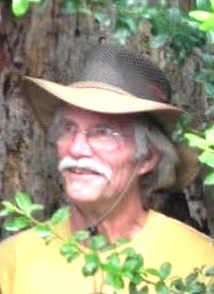
The following obituary is reprinted with permission from the Brattleboro Reformer.
William Alan Hodson (known as “Alan” throughout his life), 76, died on June 22, 2021, after a life filled with loving friends, family and an affinity for the outdoors and the environment. He was born to Sonia Chase Hodson and William “Punch” Hodson on Oct. 22, 1944, in Chicago, Ill. Soon after, he moved to Versailles, France, where his father worked as the Chief Program and Budget Director for UNESCO. He lived in France with his parents and two sisters until he was 9, when, in 1954, his father died tragically in a plane crash, after which Alan and his family relocated to Hollin Hills in Alexandria, VA.
Alan valued education deeply. He graduated from Harvard University in 1967 with a BA in International Affairs, after which he joined the Peace Corps, volunteering in Malaysia. Upon returning to the US, he received a master’s in education from Antioch University, and in 1981 he received his PhD in education from UMass Amherst, where he developed novel methods to test the learning techniques of grade-school children.
Alan dedicated his life to teaching in the Brattleboro-Putney area. After receiving his PhD, he worked at the Winston Prouty Center in Brattleboro and then spent two decades at the School for International Training as both a professor and the director of the World Issues Program (WIP).
He was a proponent of sustainability and environmentalism, two things that he shared with his maternal grandfather, Stuart Chase, a noted economist and advisor to President Franklin D. Roosevelt. Alan finished his career at Landmark College in Putney, Vermont, where he worked as a professor and academic advisor.
He leaves behind his three children: Bryce Hodson and his wife, Louise, of Putney, Vermont; Nicholas Hodson and his wife, Tara, of Putney, Vermont; and daughter, Phoebe Hodson, of Keene, NH. He also leaves his three grandchildren, Isabella Hodson, Eliza Hodson and Kaydin Hodson. He was predeceased by his mother, Sonia Chase Hodson of Abiquiu, NM, and his sister, Kristin Maloney of Chilmark, Mass. He will be dearly missed by his family and many friends and colleagues from around the world.
Originally published by the Brattleboro Reformer on July 3, 2021.
39 set to graduate during Aug 21 ceremony
BRATTLEBORO – For the first time in more than two years, graduates will cross the stage at School for International Training on Saturday, Aug. 21, during SIT’s 55th commencement ceremony.
Thirty-seven master’s degree students from around the world will be awarded diplomas during an event that will blend in-person and online participation. Two others will receive graduate-level certificates. The students completed programs in a wide range of international focus areas, including climate change, international education, sustainable development, and peace and justice leadership.
This 55th commencement ceremony is a welcome celebration of the resilience and success of our students during — and despite — immense global challenges.
“This 55th commencement ceremony is a welcome celebration of the resilience and success of our students during — and despite — immense global challenges. It’s also a poignant reminder of the critical global issues they have been inspired to address through these life-changing degree programs,” said SIT President Dr. Sophia Howlett.
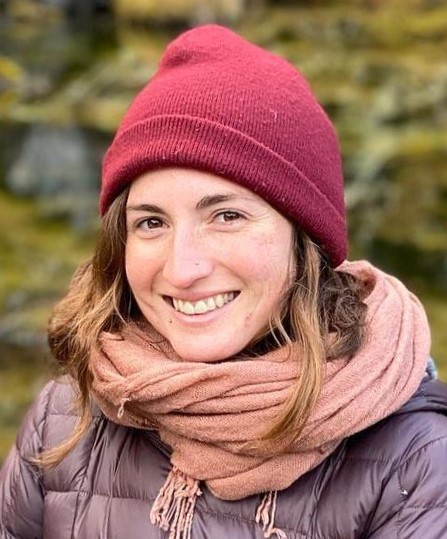
Danielle Purvis, this year’s student speaker, said SIT’s climate change program gave her the opportunity “to work at the human-environment interface and to advocate for the most vulnerable populations of our time — ecosystems.”
Purvis is set to graduate with an MA in Climate Change and Global Sustainability. Over the past year, she and others in her SIT cohort spent one semester each in Iceland and Tanzania and a third semester working with organizations around the world. Purvis completed her practicum on a field crew with the University of Vermont’s Gund Institute for Environment and conducted research for her capstone on the impact of human activities on seagrasses in Zanzibar.
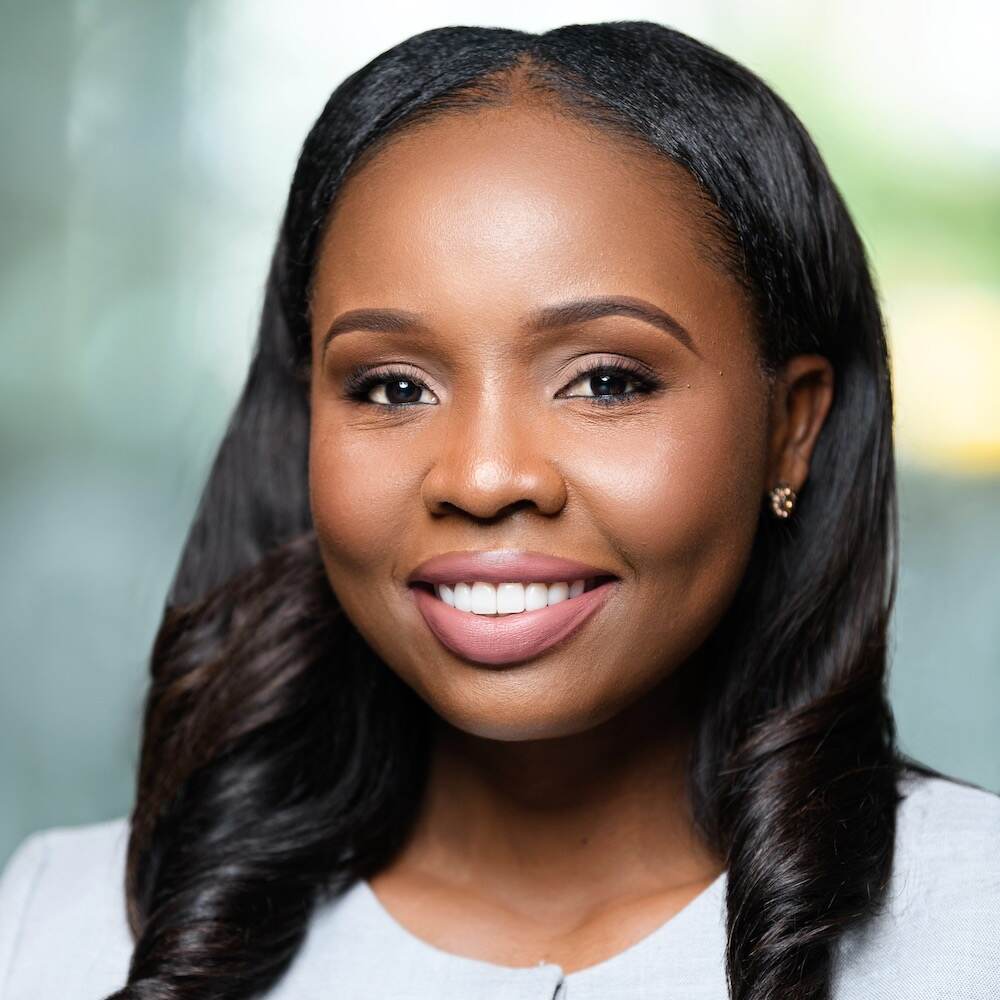
The keynote speaker at this year’s ceremony is Aicha Naomi Cooper, an international development professional at the World Bank and an alumna of SIT Graduate Institute. Last year, she joined the board of World Learning, Inc., the parent organization of SIT and The Experiment in International Living.
Cooper, who is Liberian American, draws on her experience living through a civil war in Liberia to support efforts to improve the lives of marginalized people around the world. She shares her personal refugee story to raise awareness about the global refugee crises and highlight the impact of civil conflict on women and children.
Throughout the pandemic, SIT Graduate Institute has continued to offer courses online and in person at its global centers around the world. The last in-person commencement on the Brattleboro campus was May 11, 2019. A virtual ceremony was held in August 2020 and several of those graduates have opted to participate in person this year.
Each of the graduates will have completed one of SIT’s one-year global MA programs or earned their master’s degree over two years in part-time hybrid programs that normally include brief residencies on the SIT campus in Brattleboro. Those residencies were suspended in 2020 due to the pandemic.
SIT offers MA programs in: Climate Change and Global Sustainability; Development Practice; Diplomacy and International Relations; Global Health; Humanitarian Assistance and Crisis Management; Intercultural Service, Leadership, and Management; International Education; Peace and Justice Leadership; Sustainable Development; and Teaching English to Speakers of Other Languages (TESOL).
This year, SIT launched its first EdD, in Global Education.
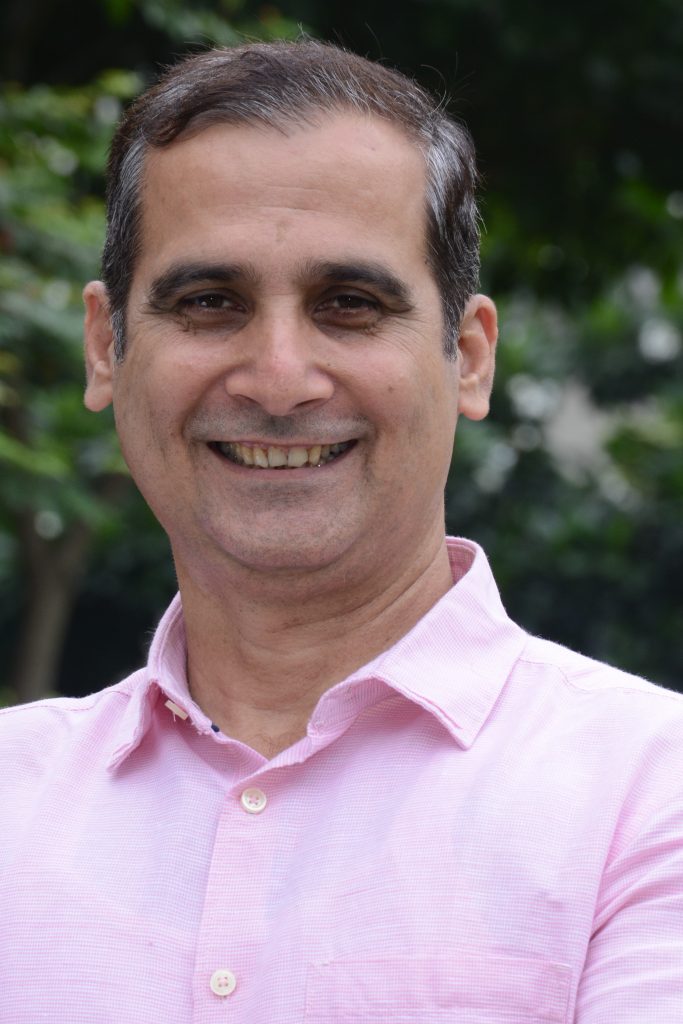
‘As a student, researcher, and professor of public health, I see exciting opportunities to learn more, research more, share more; to do a better job when humans are struck by the next pandemic.’
About 30 percent of the world’s population have so far received at least one dose of a COVID-19 vaccine. The vast majority of those have been among people in wealthier nations. In fact, only about 1.2 percent of people in low-income countries have received at least one dose of a vaccine.
Addressing this discrepancy at the G-7 summit in Belgium in June, wealthy nations pledged to provide 870 million doses for the World Health Organization’s COVAX initiative, including a pledge of half a billion doses from the United States and 100 million from the UK.
To talk about these pledges and the larger question of a global response to the pandemic, we spoke with Dr. Azim Khan, who brings a broad and multi-disciplinary background as a leader of SIT’s master’s and undergraduate health programs in India. Azim has a PhD in health, gender, and human rights from Aligarh Muslim University; an MA in human rights from the University of London; a master of laws from Aligarh Muslim University; and a bachelor of laws with distinction in constitutional law from the University of Lucknow.
Why do we need a global response to this crisis?
We have learned that no country, no community can isolate itself from a pandemic, thinking ‘We will be fine if we cut ourselves off from the rest of the world’. Today, that’s almost impossible. COVID-19 comes 100 years after the Spanish Flu of 1918 that went on for two years and caused human catastrophe, but 1918 was very different. The world was not as connected and mobility was not so high, so it took a long time to spread. Look at how quickly COVID-19 spread and caused havoc all over the world. With this kind of pandemic—at this level of magnitude—we can only come out of this when there is a coordinated global response.
What have wealthy nations done right, and what should the be doing differently?
It’s really important for developed countries that have more resources to invest more. There are countries around the world that are barely able to meet basic needs of food and shelter. We can only successfully fight the pandemic when there is a coordinated global response where higher-income countries support those that do not have similar levels of resources. This is not like the Ebola outbreak, which was an epidemic but was concentrated in a specific geographical location. There seems to be no country that COVID has not reached.
Even if countries that have resources think they can vaccinate their entire population and try to contain the pandemic within their territory, they need to understand that the pandemic won’t go away unless we are able to successfully defeat the virus all over the world.
Even if countries that have resources think they can vaccinate their entire population and try to contain the pandemic within their territory, they need to understand that the pandemic won’t go away unless we are able to successfully defeat the virus all over the world. If we had been able to put $60 billion into vaccinations along with what has been spent on health care around the world, we could have insured that every human that qualifies around the world would be vaccinated.
Countries, especially those that have resources, have been pretty self-centered, which is understandable. For any country, protecting the life and well-being of their citizens is a priority. But we need to be sure that in doing so, these countries don’t jeopardize other countries’ interests.
We have seen a sort of vaccine nationalism, which is against what we have been preaching and practicing in the post-globalization era. The scientific community, political leaders, economic resources and collective leadership should come together to create a roadmap. This is the way we’ll fight the virus more effectively.
I understand the Biden administration’s priority is to vaccinate as many people as possible as soon as possible. But we also need to look at how this affects the world. The US invested a lot of money to advance vaccine research and production. It was a very good move. This is the reason that the US does not have a lack of vaccines today. But the United States also ordered more than 50 million doses of the AstaZeneca vaccines, which have not yet gotten emergency-use authorization from the FDA. I wish that these doses were sent to the global alliance for vaccination, the COVAX initiative for smaller countries, where 50 million doses would have at least helped in vaccinating healthcare and other frontline workers. Better late than never, the White House has realized this and is now working on distribution of these vaccine doses through COVAX.
But it’s not just about the US; European countries have been fighting against themselves. All these things sidetracked the job that was expected from world leaders, especially a group like G7. World politics are shaped by these countries.
The scientific community, political leaders, economic resources and collective leadership should come together to create a roadmap. This is the way we’ll fight the virus more effectively.
We need to understand that we cannot be safe until all people are safe. This an old struggle. Infectious disease has always been a ‘Third World problem.’ Countries with limited resources struggle with all kinds of infections at different times while health systems and policymakers in high-income countries thought, ‘Epidemics are not our problem’.
Unfortunately,in the last few years the CDC had considerably cut the funding for various centers across the globe, and we saw how badly prepared the American healthcare system was in their response to the COVID-19 pandemic. In the US and the UK, doctors and healthcare workers didn’t have the capacity to deal with patients in these volumes. So, it was a huge challenge to effectively respond to the pandemic and we lost so many lives in the US, UK, Brazil, and India that could have been saved if we had had good, coordinated planning, vaccine policy and acknowledged that infectious diseases aren’t just a problem for the developing world or poor countries.
Now we must learn from these mistakes, from poor or lack of leadership that we saw around the world. We had a US president who didn’t take it seriously and we saw that although the US has a robust, advanced health system with good doctors and advanced hospitals, if there is a lack of political leadership things can still get messed up. That happened in the EU, in UK, Brazil, and in India. It happened in so many countries.
And we saw that where leadership was collaborative, transparent, science driven, and understood the importance of saving lives, those countries have done better. New Zealand, Scandinavian countries, South Korea all have done pretty well. We don’t know much about China because there is a lack of transparency in terms of data. But the worst scenarios were in places like the US, Brazil, India—all cases marked by populist politics and leaders who ignored the science and worked according to their whims and fancies. They caused a lot of misery to their countries.
… where leadership was collaborative, transparent, science driven, and understood the importance of saving lives, those countries have done better.
I really appreciate the Biden Administration’s initiative to share vaccine doses with other countries, but this could have been done in a more organized way and a few months earlier. I hope that Europe, the US, the UK, Japan, India, and Russia all join this global initiative. This is a pandemic. It can only be defeated when we work together.
What are some other factors that point to the need for a more global approach?
So many things are interconnected. The total GDP for the world was about $110 trillion before the pandemic. What happened in 2020-21 is a significant erosion of wealth; we are losing upwards of 27 percent of wealth.
Businesses are not going to function as normal unless there is control over this pandemic. How can American industry do business with industries in countries that are still fighting the virus and business activities are almost shut?
We need to understand that unless and until we defeat this pandemic, the economic situation won’t improve, even for developed countries. They have been able to support their citizens and small businesses, but you can’t boost export if other countries are not importing.
We need to understand that unless and until we defeat this pandemic, the economic situation won’t improve, even for developed countries. They have been able to support their citizens and small businesses, but you can’t boost export if other countries are not importing. So, it’s in the interest of the globe, the business community, people, and organizations to have a global initiative to defeat this pandemic.
What are some of the lessons in this pandemic for your field of public health?
Public health will be an even more interesting field, especially in the next few years as we study COVID from all angles—policy, gender, labor, economics, social impact, impact on children. A huge focus of public health is going to be understanding and studying infectious diseases in general and COVID in particular, epidemiologically, socially, economically, and clinically. So, there will be much more focus on public health. We often think of health in terms of doctors and hospitals. But we’ve seen that a pandemic requires people across disciplines, people who can insure clean water supplies and food, good governance, communication.
A huge focus of public health is going to be understanding and studying infectious diseases in general and COVID in particular, epidemiologically, socially, economically, and clinically.
For example, we know that in many places, even if technically they are free, available and affordable, accessibility to vaccines is not there. Somebody who can read English, who can get online and find a vaccine dose, someone who is technically savvy has a higher chance of accessing this vaccine than somebody who doesn’t have access to technology.
A country like India should facilitate walk-in appointments. There are clinics but if 300 people walk in, their system and resources can get overwhelmed. What happens if somebody has gone to a vaccine center thinking that he or she will get vaccinated and this person is sitting all day and then told, ‘Sorry, we’re out of stock for today. Please come tomorrow’? This person gets discouraged and, in many cases, may not turn up the next day.
So, we have done a lot of advocacy work with the government in Delhi and in other states to ensure that the vaccines are accessible and the process is user-friendly to encourage more people to get vaccinated. I’ve worked with the committees leading the campaign against COVID to support community volunteers and share the feedback with government officials to help them understand the realities and challenges on the ground.
It’s not enough to build fancy hospitals and create a good health infrastructure and say you’re doing well. Viruses have been with us; this won’t be the last pandemic. So, there is a lot of learning ahead for us. There has been a lot of misery, challenges, emotional trauma, but as a student, researcher, and professor of public health, I also see exciting opportunities to learn more, research more, share more; to do a better job when humans are struck by the next pandemic. We need to organize better and deliver better. We need to learn from each other and work together.
Dr. Azim Khan is academic director of three SIT Study Abroad programs in India: Public Health, Gender & Community Action; Traditional Medicine and Healthcare Practices; and Virtual Internship in Public Health, Community Action & Response to COVID-19 Pandemic. He is associate professor and co-chair for SIT Graduate Institute’s master’s degree in Global Health. Follow him on Twitter @azimsherwani.
The good news is that we don’t need to wait for elected officials to lead us
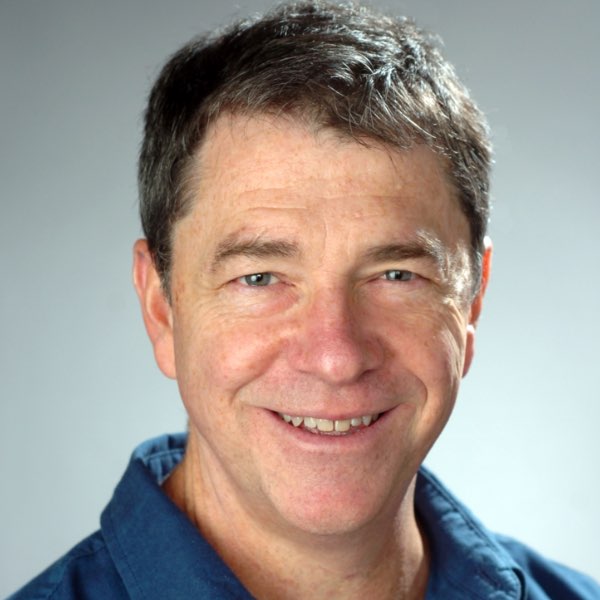
The upheaval across America in the wake of George Floyd’s murder at the hands of a Minneapolis police officer injects new urgency to our need to move beyond partisan soundbites and get serious about transforming the roots of racial conflict and injustice in America.
Sidestepping this difficult conversation now would risk a dangerous new stage of hyper-polarization in the United States; one where the flow of communication between identity groups stops, dehumanization of the other dominates, avenues for constructive change stagnate, and violence is viewed by all sides as a legitimate and necessary tactic to manage conflict. At such a point, the pathway to steep and rapid conflict escalation will open, and any remaining demarcation between the United States and militarized, authoritarian states will be lost.
Sidestepping this difficult conversation now would risk a dangerous new stage of hyper-polarization in the United States.
Two things are needed now: holistic analysis of the roots of the problem and creative and analytically sound interventions to address them. Neither is beyond our reach.
The hardest conflicts in social settings are always driven by the intersection of four forces: inequalities in power; discordant narratives about what is happening and why; incompatible positions about what should be done; and intense emotions, including fear, humiliation, rage, and hatred. Combined, these factors create a perfect storm of intractability where it feels that nothing can be done because everything must be done.
Racial conflict in America is again at that juncture. African Americans and their allies have rightly taken to the street to amplify their message that the system that white America trusts to dispense justice does not work for black America.
Media, lawmakers, and pundits on the right and left tell such divergent stories about the meaning of George Floyd’s death and protests in the aftermath that it feels like they are covering completely different stories. Arguments abound over what is needed: get-tough policies, military deployment, more police training, economic stimulation in marginalized communities, reparations for slavery, redistribution of wealth.
Finally, the emotional turmoil and trauma of the moment make it nearly impossible to imagine how we’ll move to problem-solving without a moment of collective catharsis. None is in sight, especially given the apparent inability of our leadership to engage in collective reflection and healing.
Two things are needed now: holistic analysis of the roots of the problem and creative and analytically sound interventions to address them. Neither is beyond our reach.
The good news is that there is no shortage of good ideas for how Americans can address each of these conflict drivers. A quarter century of research and experimentation in conflict transformation and peace-building has demonstrated the power of numerous tools to de-escalate and transform the structural, cognitive, positional, and emotional variables that feed destructive episodes of conflict.
These include “peace-pushing” tactics of non-cooperation to force more powerful parties to the table, community dialogues that help to reshape our conflict narratives, principled negotiations that move adversaries away from incompatible positions and toward underlying interests and needs, and public rituals that help overcome trauma and fear. Many of these tactics are in use at this moment. More are needed.
Space to sit this one out is shrinking rapidly.
Better still, citizens do not need to wait for elected officials to lead us. Everyone reading this article can contribute to transforming one of these elements. Take a training course on nonviolent tactics. If a dialogue group doesn’t exist in your community, work with religious leaders, schools, or professional groups to build one. Engage in citizens’ diplomacy where you interact across stakeholder groups, build collective agreements for change, and publicize them to show leaders that consensus is possible. Facilitate emotional release by giving space in your communities to grieving, memorialization, and other forms of collective expression.
Space to sit this one out is shrinking rapidly. No matter what side of the political divide you’re on, it is not only morally urgent but also in our collective self-interest to act.
Dr. Bruce W. Dayton leads SIT MA programs in Peace & Justice Leadership and Diplomacy & International Relations, and the CONTACT Summer Peacebuilding Program.
Hybrid program reflects core values of community, social justice, and intercultural understanding
SIT Graduate Institute is launching its first doctorate, a hybrid EdD in Global Education grounded in SIT’s powerful experiential learning model and combining online coursework with brief summer residencies in Vermont.
“This three-year degree fits the needs of professionals seeking to accelerate their careers in global education, whether in their local communities or abroad,” said Dr. Sophia Howlett, president of School for International Training (SIT).
The EdD program, which will be accepting applications from June 1 to November 1 for the first cohort beginning June 2021, draws from SIT’s unique brand of in-depth, reflective practice and intensive research training. It allows students to pursue their own specializations in education at any level, in any subfield, at any location. The program offers deeply immersive doctoral seminars; case studies; theory; data collection; research methods; written projects and reflective practice tied to students’ ongoing work experience.
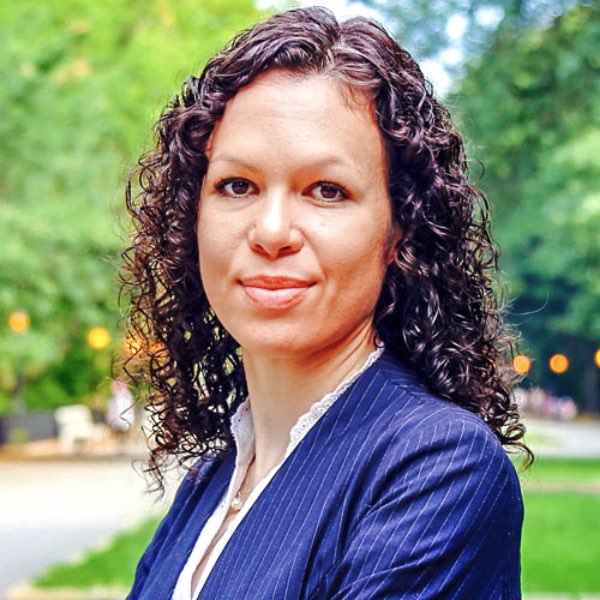
“I am excited to lead our first doctorate at SIT in Global Education for its three unique strengths: its rigorous research training; intentional curriculum of reflective practice and doctoral seminars; and its flexibility of online and in-person education to meet the demands of professionals who wish to advance in their leadership positions while researching and improving educational issues anywhere in the world,” said Dr. Alla Korzh, EdD program chair. She strongly recommends the program for students with a passion for international work and education.
The 60-credit degree offers flexible courses primarily online, with short summer residencies at SIT’s campus in southern Vermont. Throughout the program, students will receive one-on-one guidance from SIT advisors who, along with their doctoral colleagues, will collaborate closely on research topics of their choice as they work toward their dissertation.
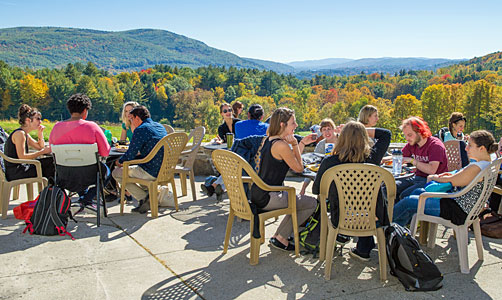
“This new doctoral program allows current International Education professionals who want to teach in higher education or reach senior levels of education administration to pursue their terminal degree within SIT’s academic and values frameworks,” said Dr. Sora Friedman, chair of SIT’s International Education master’s programs. “As with our master’s degrees, this doctorate takes SIT’s core values of community, intercultural understanding, social justice, and inclusion to the highest academic level.”
Prospective students holding a master’s degree in education or a master’s in International Education from SIT Graduate Institute may apply for the transfer of up to 12 credits.
SIT’s new doctorate expands on the institution’s diverse strengths in global programming. SIT Study Abroad delivers academically rigorous, accredited undergraduate summer and semester programs around the world. SIT Graduate Institute in 2018 introduced a new one-year Global MA format to addressing some of the world’s most critical global issues: Climate Change & Global Sustainability; Development Practice; Diplomacy & International Relations, Global Health Policy, Administration & Management, Humanitarian Assistance & Crisis Management, and International Education. These full-time MA programs are delivered at SIT centers around the world, with a final practicum semester anywhere in the world.
In addition, SIT Graduate Institute offers hybrid MA programs in Intercultural Service, Leadership & Management, International Education, Peace & Justice Leadership, Sustainable Development, and TESOL. Designed for working professionals, these two-year programs are delivered primarily online, with brief residences in Vermont and abroad.
“These one-of-a-kind global programs build on SIT’s nearly 90-year history of training the next generation of intelligent, compassionate global leaders at a time when the world faces unprecedented challenges,” said Dr. Howlett. “Our dedicated faculty have carefully designed these programs to prepare students to tackle urgent issues of the day in a global context.”
Many of SIT’s graduates go on to work in high-level positions with organizations such as the United Nations, colleges and universities, nongovernmental organizations, and major foundations across the globe. Graduates of SIT’s EdD program will similarly benefit from the institute’s broad professional and alumni networks throughout the world.
For prospective students interested in learning more about the new EdD program, SIT faculty will be available to answer questions during a June webinar series. Scroll down to “Webinars” here: https://graduate.sit.edu/admissions-aid/information-sessions-webinars/.
Visit our website to learn more about SIT Graduate Institute programs or scholarships. SIT is part of World Learning, a global NGO that advances education, development, and cultural understanding around the world.
11 complete master’s degrees at SIT Graduate Institute
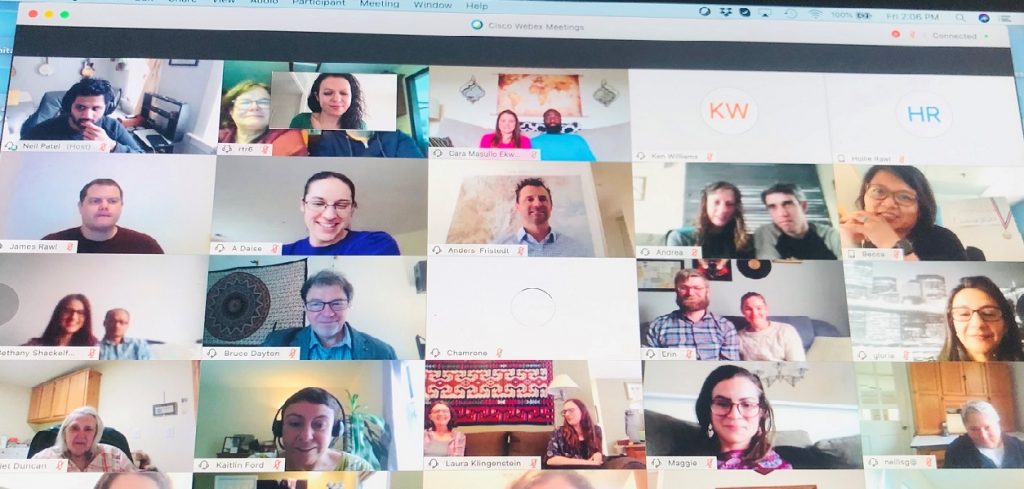
Eleven students completed their master’s degree programs May 8 at SIT Graduate Institute, closing out their two-year low-residency programs with virtual capstones presentations and an online commencement ceremony. The 11 students completed their degrees in SIT programs in International Education, Sustainable Development, and Intercultural Service, Leadership & Management.
Dr. Alla Korzh was lead facilitator of the capstone seminar. Following are the remarks she gave at the closing ceremony:
“Congratulations, graduates!
“Your graduation in the midst of the pandemic is testament to the resilience, adaptability, determination, and courage needed to conquer challenges facing our world today. Reflecting on where we are now, we probably have many more questions than answers, and this uncertainty is unsettling for everyone. And yet today, I am reminded of Rainer Maria Rilke’s quote:
Have patience with everything that remains unresolved in your heart. Try to love the questions themselves, like locked rooms and like books written in a foreign language. Do not now look for the answers. They cannot now be given to you because you could not live them. At present you need to live the question.
“Be in the moment. Be comfortable in the discomfort of the unknown. And live the question of what if? And if so, how? What world do we envision and deserve post-pandemic? How will each of us shape it the way we envision it?
What world do we envision and deserve post-pandemic? How will each of us shape it the way we envision it?
“I am confident that all of you — with deep hearts, invincible will, electrifying passion for your professional cause, and steadfast commitment to justice — will be contributing to a more just, compassionate, science-based, and sustainable world, the one in which our individual actions will shape the collective response to the calamities facing this planet, in which each and every single one of us can make a difference. So, as Henry David Thoreau said, go confidently in the direction of your dreams!”
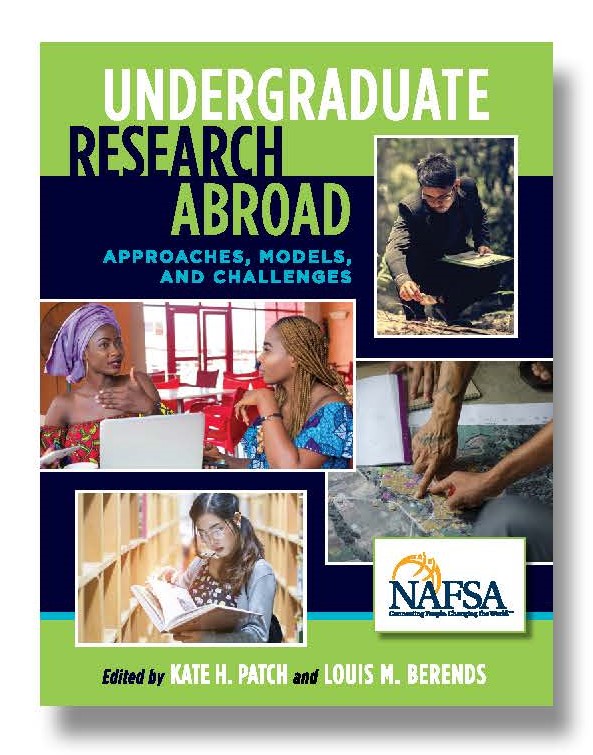
SIT faculty and staff are among the contributors to a new book, Undergraduate Research Abroad: Approaches, Models, and Challenges, published this week by NAFSA.
The volume is edited by Kate H. Patch, senior director of global initiatives at Grinnell College, and Louis M. Berends, vice president of academic affairs at CEA Study Abroad. It was released May 4 and is available for download from NAFSA.
SIT contributing authors are Academic Dean Brian Hammer, Academic Director Victor Tricot, and and Mory Pagel, executive director of institutional relations and strategic partnerships.
Tricot, academic director for the SIT program Spain: Policy, Law, and Regional Autonomy in Europe, wrote the chapter “Colonialism and the Ethics of Undergraduate Research Abroad.”
Hammer, SIT’s academic dean for the Asia/Pacific region, and Pagel penned “Ethics and Reciprocity: SIT’s Perspective.”
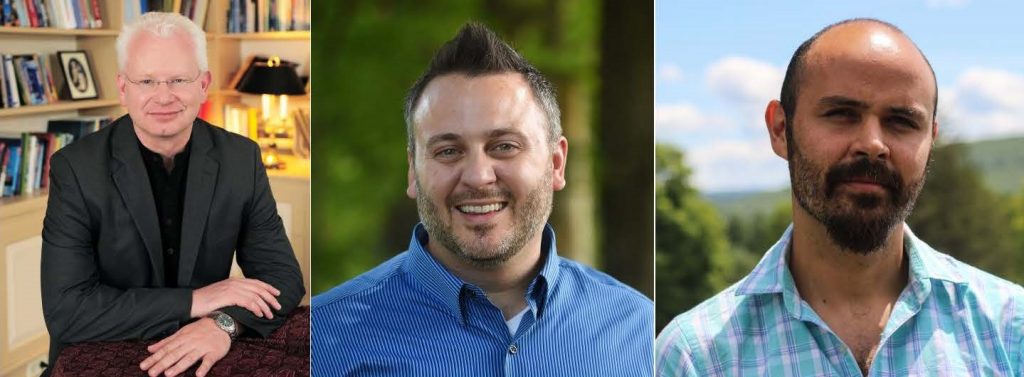
… engaging undergraduates in research activities in unfamiliar milieus can enrich their college experience and add to the betterment of the host community,”
“Meeting the growing interest for undergraduate research abroad requires program leaders and student advisers to consider new opportunities beyond those common to traditional study abroad experiences,” writes NAFSA. This book explores various institutional and organizational perspectives on program models, faculty and student recruitment, ethics, and best practices.
Reviewers are praising the book as an important contribution to the field. “The contributors illustrate why and how various approaches to engaging undergraduates in research activities in unfamiliar milieus can enrich their college experience and add to the betterment of the host community,” writes George D. Kuh, chancellor’s professor emeritus of higher education at Indiana University
J. Kline Harrison, associate provost for global affairs at Wake Forest University, calls it “a timely and valuable resource for educational institutions seeking to begin or enhance undergraduate research abroad. … Those in the field of education abroad will be well served by this publication.”
“The authors provide not only foundational knowledge and standards for designing high-impact research abroad programs, but include expert perspectives from a variety of institutional types, program providers, and academic disciplines” wrotes Amanda T. Kelso, executive director, Global Education Office for Undergraduates at Duke University.
Members of the public may listen to these presentations. Please email Kim Lier ([email protected]) for details.
Tuesday, May 5
1:00 – 2:30 PM Travis Pocta
A Comprehensive First Semester at the University of Delaware
3:00 – 4:30 PM Bethany Shackelford
Wednesday, May 6
10:30 AM-12:00 Cara Masullo
Integrating Education Abroad: Fostering Critical Reflexivity in Students
1:00 – 2:30 PM Erin Slocum
1:00 – 2:30 PM Violet Uwera
3:00 – 4:30 PM Andrea Bachmann
The Island Earth Field Studio: A High School Summer Program on Polynesian Voyaging in Hawaii
3:00 – 4:30 PM James Rawl
Evaluation: Adventure Camp of Altru Family YMCA
5:00-6:30 PM Laura Klingenstein
Identity in Translation: International Students’ Perspectives on Language and Identity
Thursday, May 7
10:30 AM-12:00 Yin Zhang
Service Learning in Rural China: A Program Design for the Associated Colleges in China
1:00 – 2:30 PM Marguerite Cawley
What Does a Vision for a “Just” Food System Look Like? Views from Worcester in a Changing Climate
3:00 – 4:30 PM Anders Fristedt
We have a window of opportunity
By Dr. Paula Green
This article originally appeared in The Hampshire Gazette. It is reprinted here with permission.
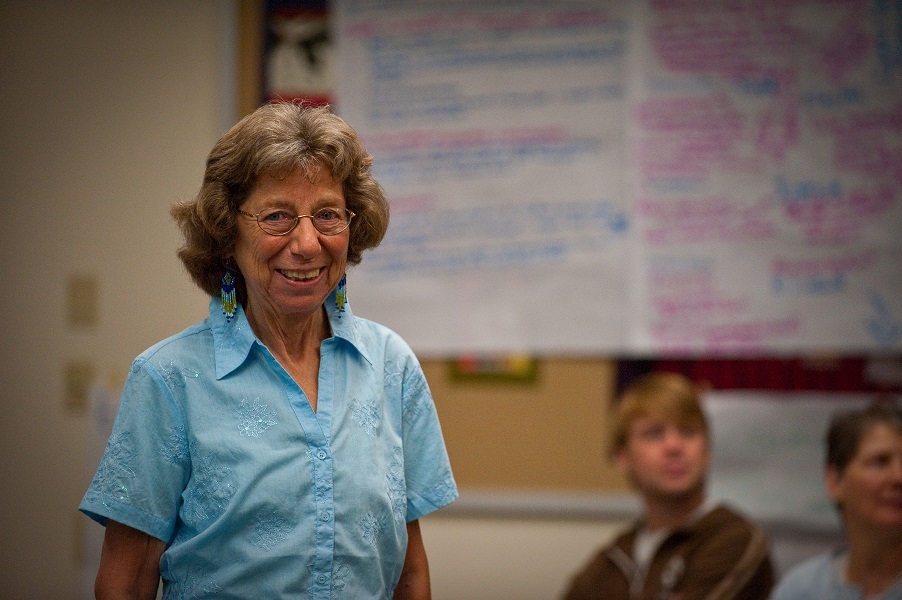
The secretary general of the United Nations has issued a plea to the countries of the world to declare an immediate ceasefire.
“The fury of the virus illustrates the folly of war,” António Guterres said on March 22. “Let us dedicate ourselves to the real fight, which is not with each other, but is to protect our health and the health of our planet.”
Can we heed his plea, acknowledge more fully than ever our profound and indisputable interdependence, and seize this perilous moment as an opportunity for broad and deep societal change? How much more evidence could we need? Borders and boundaries do not protect us. Position and privilege may not keep us from harm. No country or village is too far away. We are all vulnerable to this virus.
Life offers each of us more than enough suffering without armed conflict. Let us require our governments to respond to the secretary general with their national commitments to end armed conflict. We can put our trust in the tools of diplomacy and band together across nations to alleviate the anguish of wars. Seeing through the delusions of separateness so clearly helps us mobilize for the transformation to a human race at peace with itself and the planet we share. An aware and empowered populace will hasten this change.
This juncture provides an opening to rethink our values and behaviors, to recreate societies that reflect altruism and peace. Many whose lives are comfortable are now discovering how to live with a lot less, and as we diminish our greed, we reduce one of the major causes of war.
The current reduction of human activity forced by this coronavirus enables the earth, scarred with pollution and toxins, to begin to purify and renew itself so that in the future rivers will sparkle and stars glitter. Just as the soil, water, and air around us recovers from some of its poisons when we cease our frantic consumption, perhaps we humans, especially those with the privilege of slowing down, will accept the challenge to renew and liberate ourselves as well.
This juncture provides an opening to rethink our values and behaviors, to recreate societies that reflect altruism and peace. Many whose lives are comfortable are now discovering how to live with a lot less, and as we diminish our greed, we reduce one of the major causes of war.
Might we now give up on the illusion that we are rugged individuals and proclaim our interconnectedness? We all crave contact, which we currently attain in dystopian fashion on Zoom. In being present for each other, even electronically, we strengthen our common humanity and social solidarity. We find ways to nurture and weave our precious human web, to remember that our human needs are universal, and that our generosity is a gift that ripples out and reproduces itself.
As we engage locally, we extend our concern to those millions of us who are vulnerable, perhaps experiencing increased economic hardship, political repression, the scourge of racism, the pain of exclusion, or health difficulties.
The climate crisis, appalling inequality, the destruction of our earthly home and its flora and fauna, are all powerful evidence that our ways of organizing society are dangerously outmoded. Social change emerges slowly and invisibly, yet the new is always fermenting within the old.
… we do not serve ourselves or our society by focusing on our fears. Focus instead on what your awakened and discerning self can see and do. This planetwide virus, tragic as it is, has the potential to galvanize multitudes.
Eventually, the old ways fracture and new realities will burst forth. Our minds, burdened by the fear and endless battles of our politics, can take us to negative images of increased authoritarianism, militarism, xenophobia and injustice. Many will be pushing for that kind of social order, and we have to organize mightily against their demands, beginning now.
But we do not serve ourselves or our society by focusing on our fears. Focus instead on what your awakened and discerning self can see and do. This planetwide virus, tragic as it is, has the potential to galvanize multitudes. Once awake, there is no returning to delusions like walls, borders, hatreds, or an us-them mentality. Once conscious, we are all “us.”
We are each citizens of the community of life and everything we do matters in the universe. Our visions and actions are the building blocks of the community and the world we deeply wish for. We prepare for its arrival as we make the most of this potentially transformative moment.
Dr. Paula Green is founder of Karuna Center for Peacebuilding and currently guides the Hands Across the Hills dialogue project. She is Professor Emerita at School for International Training, where she founded the Conflict Transformation Across Cultures (CONTACT) program in 1997. Working internationally in zones of conflict, she observed the need for those experiencing war and its aftermath to speak directly to each other, sharing strategies for rebuilding their shattered societies. During the first year of CONTACT there were 10 participants; by the third year there were 60 to 70 participants each June on the SIT campus ranging in age from 20s to 70s. The program expanded to five African countries encompassing most regions, and to Nepal, especially for South Asians. Dr. Green retired from SIT after the 2015 CONTACT program, which lives on under the directorship of Dr. Bruce Dayton. CONTACT graduates are now leaders in their own countries, working for peace and justice while healing the wounds of war. Click here to learn more about the program.
Why Peace Corps volunteers are drawn to the SIT experience
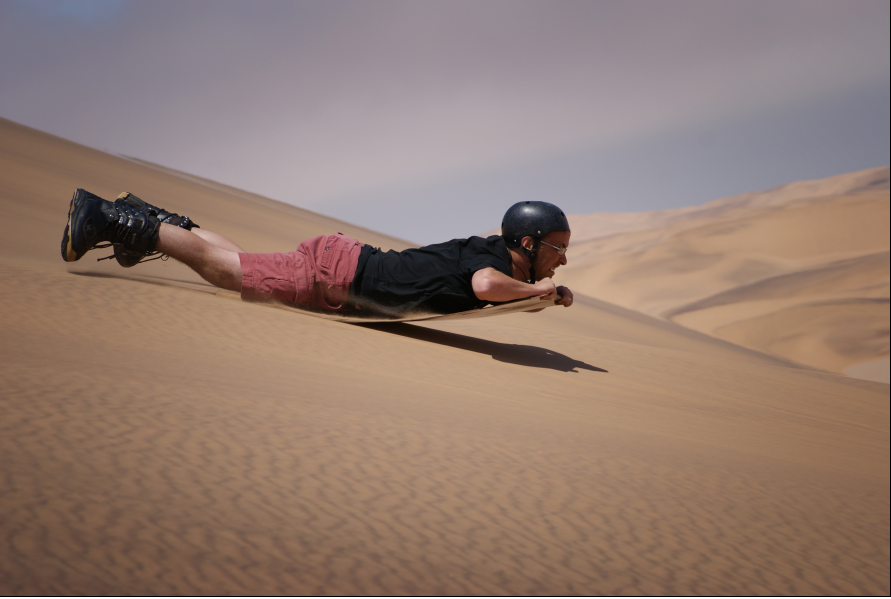
School for International Training (SIT) and the Peace Corps have a shared history tracing back to the early 1960s, when Sargent Shriver, the first director of the Peace Corps, called on SIT’s precursor, The Experiment in International Living, to train the earliest Peace Corps volunteers.
That partnership paved the way for establishment of School for International Training in 1964. Today, SIT offers graduate and doctorate programs through SIT Graduate Institute, with many of our alumni also serving in the Peace Corps.
When Peace Corps volunteers’ time abroad was recently cut short by the novel coronavirus, SIT decided to create enhanced scholarships for those returning home early in gratitude for their commitment and service. In this series, we talk to alumni about the similarities between their Peace Corps and SIT experiences — and what makes the ideal candidate for both.
SIT can help you intellectualize the Peace Corps experience in a deep, meaningful way to help you understand what you learned with your mind and your heart.
Ian Hefele, 37, is a husband and father to two foster children in Brattleboro, Vermont. After growing up in Connecticut, he lived in Namibia, Australia, the UK, Germany, Guatemala, Costa Rica, and, from 2005 to 2009, he taught for the Peace Corps in Mozambique. He earned his master’s in Intercultural Service, Leadership and Management at SIT in 2013. He is now an SIT Study Abroad admissions counselor for the Middle East and South Africa.
What made you want to work with the Peace Corps, and what commonalities does it have with SIT?
I wanted to be a part of the Peace Corps since the 8th grade, when my sister’s friend came back from Guatemala with stories of living a completely different life, having different experiences in another language, and how she learned to cook on a single, open flame. I also remember watching Nelson Mandela on television as a kid with my parents after he was released from prison [in 1990] and just being fascinated by South Africa. I wanted to go there so much. It really sparked my curiosity. I was always interested in other cultures. My best friend in kindergarten was from Japan. My mom taught English as a second language when I was a kid. She taught a lot of Haitians and Brazilians, so we had a lot of people from a lot of different places growing up as guests in our home.
That SIT respected and acknowledged my Peace Corps experience and wanted to honor it, that meant a lot.
The drive to learn about and understand other cultures in a deep and meaningful way is one of the main things the Peace Corps and SIT have in common. I didn’t know about SIT when I was in the Peace Corps, or that SIT used to bring Peace Corps volunteers to Vermont for language training, but someone reached out to me and told me about the SIT scholarships for Returning Peace Corps Volunteers (RPCVs) and for me, it cemented the connection between SIT and Peace Corps. That SIT respected and acknowledged my Peace Corps experience and wanted to honor it, that meant a lot. That was definitely something that sealed the deal in my wanting to study there.
How did your Peace Corps and SIT experiences complement or enhance each other?
When I did my master’s at SIT, I took some Arabic and remember thinking, ‘Why is this so familiar?’ I realized the Peace Corps is using a very similar, if not the same, approach to curricula and teaching students new languages, which is to say it is very experiential. For instance, we would spend the mornings in Mozambique mostly learning the grammar. The lingua franca in Mozambique is Portuguese. But then, in the afternoon, they would say, here’s 100 meticais ($4), we have to go to the market to buy food to make lunch together. And we’d have to practice what we’d learned at the market in order to eat. There’s also a heavy emphasis on life skills in your new culture – learning how to teach, speak, act, and even cook Mozambiquan-style.
Can you remember a key SIT experience that allowed you to better appreciate your time in the Peace Corps?
I almost wish I’d studied at SIT before the Peace Corps. Every Peace Corps volunteer has incredible highs and incredible lows, and the SIT experience would have helped me get through the lows faster, and understand their importance. Learning cultural competencies really helps you understand those major differences in the moment, that, as a 22-year-old, you may have a lot of trouble grasping. There were so many moments, where I felt like, ‘What on earth is going on?’ I was having this major experience in my life, in my formative years, in the Peace Corps, while most of my friends were getting apartments in New York and well-paying jobs. Meanwhile, I am living in a shack without running water, a two-room concrete house. The knowledge gained during my SIT classes really helped me internalize those experiences better. SIT can help you intellectualize the Peace Corps experience in a deep, meaningful way to help you understand what you learned with your mind and your heart.
What hard and/or soft skills did you get from your time learning with both these organizations that helped in your career and in your life?
I had these experiences in the Peace Corps and I learned a lot, but I never got to the ‘So what?,’ or the ‘Now what?’ I didn’t have the intellectual or emotional maturity to process it. SIT got me there. Today, I talk to parents about sending their children abroad through SIT. I have Morocco, Tunisia, Jordan, and South Africa in my portfolio. Parents often have no idea what that means to send your children to these places. I go back to my intercultural communication competencies.
Before I made that connection as an admissions counselor, I was heavy on the ‘admissions’ and less on the ‘counselor.’ But because of what I learned, it helped me identify my own knowledge base, to counsel parents who are concerned for their children, while also helping to humanize Moroccans, Jordanians, South Africans, and Tunisians for families who want to know more before sending their children abroad. It has finally given me a level of patience and a desire to help educate. I’ve been working at SIT for several years, and I stopped counting, but by year five I had already helped more than 3,000 students travel abroad.
To your mind, what makes for the ideal SIT-Peace Corps candidate?
SIT and the Peace Corps have a great deal in common in that they both seek students who have drive, but are flexible, open, caring and have a desire to meet people where they are. There is also an intercultural piece to it. Many people think intercultural means international, but that’s not necessarily the case. Someone who studies at SIT, or is a good candidate for SIT, is probably comfortable traveling abroad but they can also see the intercultural experience in all aspects of life, even the domestic side.
The above is the first in a series of Q&As the School for International Training is conducting with alumni of both the Peace Corps and SIT.
To learn more about SIT Graduate Institute’s scholarships for returning Peace Corps volunteers or SIT master’s and doctorate programs, please reach out to Ashley Mehaffie at [email protected] or Maira Tungatarova [email protected].
A letter to the worldwide CONTACT community from founder Dr. Paula Green
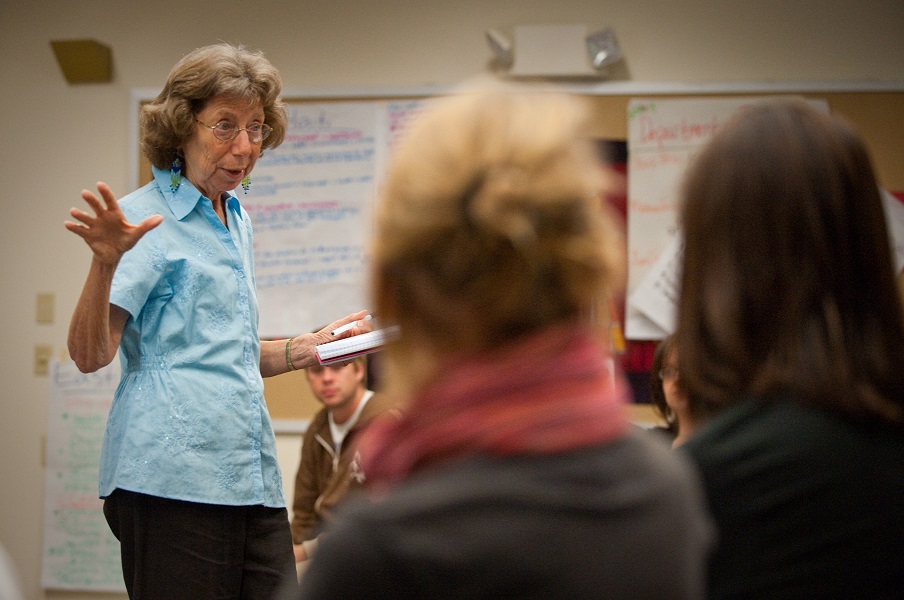
Following is a letter from Dr. Paula Green, founder of SIT’s Conflict Transformation Across Cultures (CONTACT) program, to CONTACT participants around the world. Several have translated it to share in their home countries. It is published here with Dr. Green’s permission.
Dear CONTACT Family,
It has been a long time since we have had any full CONTACT Program connection. This moment in global history, where together we face a pandemic impacting all of us, feels like the time for reconnection, renewal, and deep reflection.
Every year we gathered a global group who became sisters and brothers in love and support to each other. We learned that we are many in our wildly wonderful diversities and that we are one in our care and connections. We discovered that we are completely interdependent and that our safety and wellbeing is tied up together, which we experience now in ways that have never been so clear.
Currently, the whole world is learning what we discovered in our weeks together in CONTACT. Borders and boundaries do not protect us. Position and privilege may not keep us from harm. No country or village is too far away. In the eyes of this virus, we are all vulnerable. As leaders in our communities, as people of peace and justice, as conscious global citizens, what is being asked of us? How does each of us turn this pandemic into an opportunity for empathy, kindness, economic and political justice, and social healing?
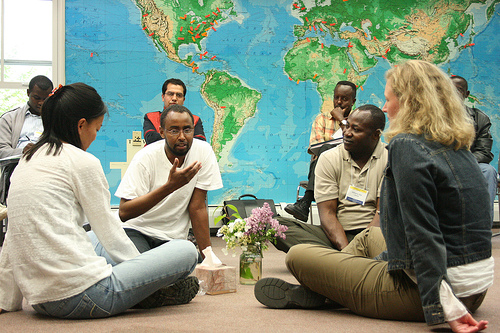
How does each of us turn this pandemic into an opportunity for empathy, kindness, economic and political justice, and social healing?
I think we are called together to proclaim aloud our interdependence, to give up on the illusion that we are separate. This is the time to care for one another, to remember that compassion strengthens the immune system, that our human needs are universal, and that our generosity is a gift that ripples out and returns to the giver.
In CONTACT, we stayed present for each other and by being present experienced our common humanity and social solidarity. That’s what we have to give to the world, a world perhaps ready to hear because the virus needs no passport and can invade everywhere. We are being called to expand our circle of care and inclusion, leaving out none and embracing all. We are especially being asked to serve those millions of us who are vulnerable, perhaps experiencing increased economic hardship, political repression, or health difficulties.
This is a time for the earth to allow and to assist the earth, scarred with pollution and toxins, to heal itself. Perhaps we humans, in this time of slowing down, will begin to recover, just as the soil, water, and air around us recovers from some of its poisons. This could be the opportunity to rethink our values and behaviors, to recreate societies that reflect altruism and peace. Many are now discovering how to live with a lot less, and as we reduce our greed, we reduce one of the major causes of armed conflict. We can be inspired by the Secretary General of the United Nations, who called on the countries of the world to declare an immediate ceasefire. “The fury of the virus illustrates the folly of war,” he said. Let us dedicate ourselves to the real fight, which is not with each other, but is to protect our health and the health of our planet.
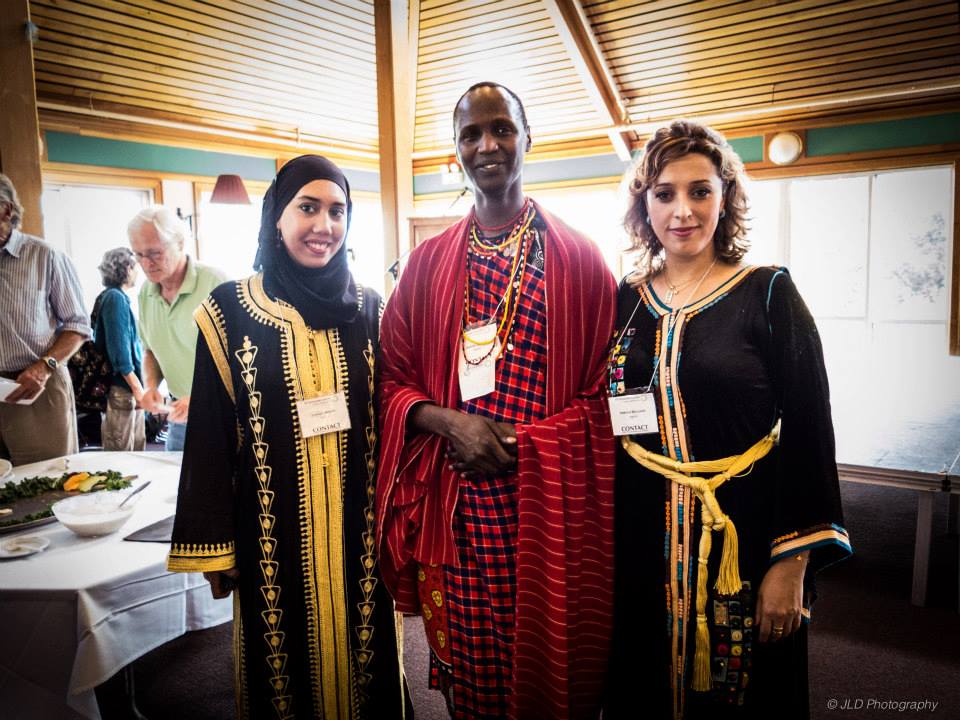
Many are now discovering how to live with a lot less, and as we reduce our greed, we reduce one of the major causes of armed conflict.
We know social change is extremely slow and resistant, yet we are aware that the new is always fermenting itself under the old, until finally the old ways crack and new realities emerge. Our shared global experience is producing those cracks. What happens next can be glorious or terrifying. Yes, our minds can take us to negative images of increased authoritarianism, militarism, and injustice. But we do not serve ourselves by focusing on our fears. Focus instead on what your awakened and aware self can see and do. This planet-wide virus, tragic as it is, has the potential to wake up multitudes, just as CONTACT woke each one of us up. Once awake, there is no returning to delusions like walls, borders, hatreds, or an us-them mentality. Once awake, we are all “us.”
You, the CONTACT family, created realities of belonging together. In this troubled time, convey that experience of unity, interconnection, and belonging into our world. Remember what transformed you, and use it in the service of our common survival. Take care of yourselves and your families so you can be here as part of the great transition that we so deeply yearn for and is within our reach if we all choose to act. Because we are linked in the web of life, every small act of social responsibility and kindness heals others, inspires many, advances hope, and sets in motion a great chain of courage and resolve.
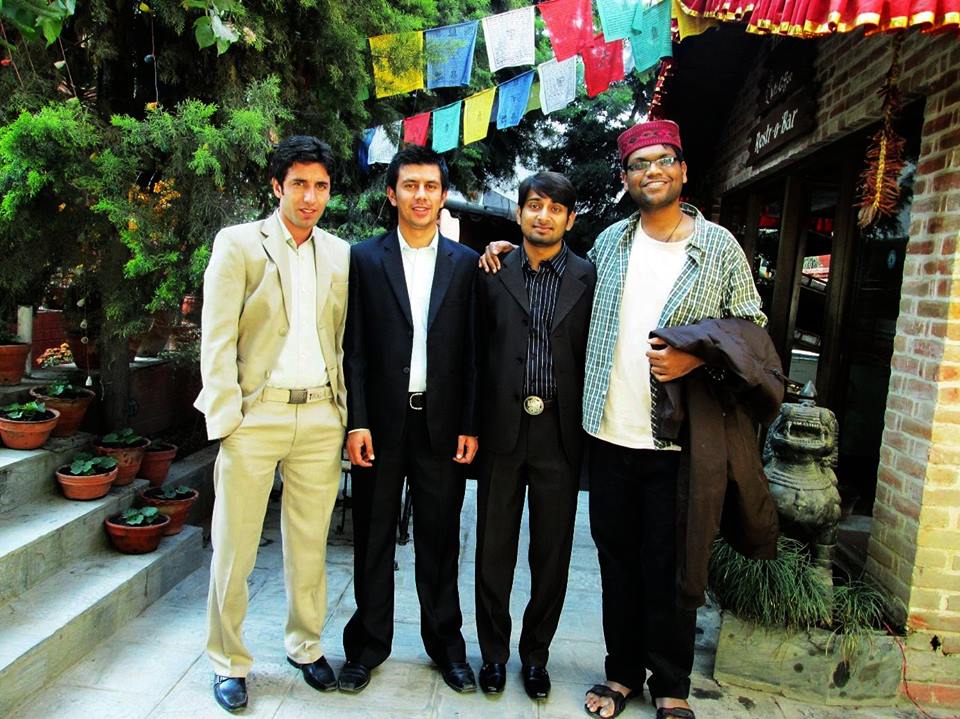
Whichever continent you are on, wherever your country, know that you are part of something much larger than yourself, and that everything you do matters in the universe.
Whichever continent you are on, wherever your country, know that you are part of something much larger than yourself, and that everything you do matters in the universe. Respond to this letter and to all of us if you wish, so that we can further support one another and take inspiration and strength from each member of this global community.
With love and concern all around,
Dr. Paula Green
Founder, The CONTACT Programs: Conflict Transformation Across Cultures
Dr. Green joined the faculty of SIT’s Peacebuilding and Conflict Transformation program, now called Peace and Justice Leadership, in 1995 and founded CONTACT in 1997. Working internationally in zones of conflict, she observed the need for those experiencing war and its aftermath to speak directly to each other, sharing strategies for rebuilding their shattered societies. During the fear year of CONTACT there were 10 participants; by the third year there were 60 to 70 participants each June on the SIT campus ranging in age from 20s to 70s. The program expanded to five African countries encompassing most regions, and to Nepal, especially for South Asians. Dr. Green retired as Professor Emerita from SIT after the 2015 CONTACT program, which lives on under the directorship of Dr. Bruce Dayton. CONTACT graduates are now leaders in their own countries, working for peace and justice while healing the wounds of war. Click here to learn more about the program.
The novel coronavirus has created an unprecedented global crisis that has seriously impacted every single one of us over the past few months. SIT is a nonprofit organization with infrastructure and a network of staff, faculty and families across more than 50 countries. All are part of the SIT community throughout the year and all are there to support you on your study abroad experience. Our campus in Brattleboro, Vermont, houses the admissions team who worked with you, our marketing group, IT specialists, librarians and all the other integral support for our academic programs. The strength of this group in Vermont and across the world means that we are now able to transition to the online experience. Those who would have taught you and cared for you are still with us and looking forward to working with you in this very different format.
SIT is offering online completion of all programs, enabling students to earn full credit for the semester. We expect this to begin seven to 10 days after you arrive home. Students who choose to withdraw from a program are eligible for a refund according to our published refund schedule. If a student opts for “Early Departure” and leaves the program having completed some but not all the components, taking a grade of Withdrawal (W) in one or more courses, the student is not eligible for a refund. We know that choosing whether to withdraw or go online is a big decision for your academic and financial future, and each case can differ given that we have varying types of agreements with your schools. For that reason, we have set-up a support service to talk through your individual situation. Please contact SIT University Relations Manager, Meghan Devine ([email protected]).
SIT aims to reimburse change fees for students’ flight from the program location to their final destination if your program closed, and you left due to that closure. If you have needed to buy a new flight in these same circumstances, SIT also aims to compensate you up to $1,000. In case of ticket change or new ticket purchase, we will only reimburse for the same cabin level or lower than your original flight.
Please send all ticket change fee receipts or new ticket receipts and original and new travel itineraries to Lynn Meyer, SIT Budget Assistant: [email protected], within 14 days from completing travel (or 14 days from the date of this letter). In the subject line of the email please write: “[SIT country and program name]: airfare reimbursement.” Please note: We may ask for further information before a final decision on your reimbursement.
Unfortunately, if you choose to leave the program country after the end of all SIT Study Abroad program services on March 24, 2020, we are not able to offer reimbursement for any fees associated with leaving the country. If a student cannot leave the program country, then program services in that country will remain open and the student will ‘shelter in place’ until we can find appropriate travel home.
SIT regrets that we are unable to provide refunds for room and board or ISP stipends. This is an unprecedented situation. We have diverted funding to make sure you all get home because that was and remains our top priority. Our costs for the education of the class of spring 2020 will be ongoing; and many other costs have already been incurred and cannot be recovered. To develop and build out our immersive programs, SIT invests in salaries, program centers and other infrastructure, and non-refundable payments to stakeholders in our host communities. Your support services, for instance at Student Affairs or the Library, will continue. In addition, we are investing right now to ensure we have an online designer team working full-time for our undergraduates and providing trainings and additional support for your faculty across the world so that they can continue to teach. We understand that this is a frustrating time for you and we appreciate your consideration of the full picture.
If an individual student is experiencing serious hardship due to current circumstances, please talk with your academic or program director, who will connect you with SIT University Relations Manager Shun Yanagishita ([email protected]) to help problem-solve. For instance, SIT can collaborate with your home institution and/or look for other resources that might be available. We will do our best to make sure that no student suffers undue hardship during an already stressful time.
We also appreciate that you have needed to leave your amazing country and program before the completion of your semester. Some needed to leave very early in the program. We know that for many of you this was your only projected opportunity to spend time studying overseas. Please know that everybody at SIT very much wanted you to have this time away and were so excited to have you with them. We still want you to have that experience, if it is at all possible for you.
Consequently, for all students who complete the online continuation of their program at this time, we have prepared the following scholarships. You may choose between the following options:
Option 1
Each of you has a unique situation depending on your current class standing and your home institution’s policies on study abroad. But if pursuing another study abroad experience is possible for you, we hope you will consider taking advantage of a scholarship for a summer or semester program with SIT. There is no hurry! This scholarship is available to you during your undergraduate degree up until the summer after your graduation (from this summer until summer 2022).
Option 2
SIT is an accredited college and offers full-time and part-time graduate degrees. Given the complications you may have taking another study abroad experience at this time, we wanted to offer you something for your future. We are extending this scholarship opportunity to all SIT masters programs. Please see below for the discount rate we are applying specifically for our spring 2020 undergraduate students. You may choose either one of our Global Masters programs which allows students to complete a master’s degree in up to three countries over 12 months full-time, or a part-time low-residency program over 24 months. In some cases, it may be possible for you to return to the country of your study abroad program through one of our master’s degrees. This scholarship will be available to you for the next three years (for all MA degrees starting from fall 2020 until degrees starting in fall 2022 inclusive).*
SIT Scholarships for Spring 2020 Study Abroad Students
SIT will offer scholarships to students (up to one scholarship per student) who have had their spring 2020 SIT semester abroad experiences cut short by COVID-19 pandemic travel restrictions and who have continued their program to completion (defined as 12 to 16 credits). Scholarships will be available for the next two years for select SIT summer and semester programs. You may also choose to use your scholarship for the next three years for one of SIT Graduate Institute MA programs. Please contact [email protected] to utilize your scholarship. Scholarship percentages and estimated average amounts are as follows:**

SIT Study Abroad semester programs open for scholarship
- Senegal: Hip-hop, African Diaspora and Decolonial Futures
- Malaysia and China: International Relations and New Economies
- Portugal: Sustainability and Environmental Justice
- Spain: Policy, Law, and Regional Autonomy in Europe
- Jordan: Refugees, Health, and Humanitarian Action
- Jordan: Geopolitics, International Relations, and the Future of the Middle East
- Morocco: Multiculturalism and Human Rights
- Nepal: Tibetan and Himalayan Peoples
- Indonesia: Arts, Religion, and Social Change
- Argentina: Transnationalism and Comparative Dev in South America
- Bolivia: Multiculturalism, Globalization and Social Change
- China: Health, Environment, and Traditional Chinese Medicine
- Chile: Comparative Education and Social Change
- Cameroon: Development and Social Change
- Czech Republic: Arts and Social Change
- Ecuador: Development, Politics, and Languages
- Serbia, Bosnia, and Kosovo: Peace and Conflict Studies in the Balkans
- India: Sustainable Development and Social Change
- India: Public Health, Gender, and Community Action
- Kenya: Global Health and Human Rights
- Mongolia and Siberia: Nomadism, Geopolitics, and the Environment
- Madagascar: Biodiversity and Natural Resource Management
- Morocco: Field Studies in Journalism and New Media
- Mexico: Migration, Borders, and Transnational Communities
- Nepal: Development, Gender, and Social Change in the Himalaya
- Panama: Tropical Ecology, Marine Ecosystems, Biodiversity Conservation
- Rwanda: Post-Genocide Restoration and Peacebuilding
- South Africa: Social and Political Transformation
- Senegal: Global Security and Religious Pluralism
- Switzerland: Banking, Finance, and Social Responsibility
- Tunisia and Italy: Politics and Religious Integration in the Mediterranean
- Tanzania: Zanzibar: Ecology and Natural Resource Management
- Uganda: Global Development Studies
- Vietnam: Culture, Social Change, and Development
- Samoa: Social and Environmental Change in Oceania
SIT Study Abroad summer programs open for scholarship
- Indonesia: Biodiversity and Conservation in Bali and Borneo
- Argentina: Art, Memory, and Social Transformation
- China: Community Health and Traditional Chinese Medicine
- Colombia: Building a Culture of Peace
- Jordan: Counseling and Humanitarian Action Internship
- Kenya: Public Health in the Tropics Internship
- India: Agroecology and Food Security in the Himalaya
- India: Traditional Medicine and Healthcare Practices
- Panama: Community and Nongovernmental Organizations Internship
- South Africa: Social Justice and Activism Internship
- Jordan: Engineering and Design for Sustainable Environments
- Jordan: Intensive Arabic Language Studies
- Madagascar: Traditional Medicine and Healthcare Systems
- Morocco: Arabic Language and Community Service
- Nepal: Geoscience in the Himalaya
- Panama: Marine Ecology and Blue Carbon Conservation in the Pacific and Caribbean
- South Africa: Education and Social Change
- Switzerland: International Studies and Multilateral Diplomacy (Summer 2)
- Tanzania: Climate Change and Sustainability, Mount Kilimanjaro to Zanzibar
- Uganda and Rwanda: Peace and Conflict Studies in the Lake Victoria Basin
- Vietnam: Nongovernmental Organization Internship
Please note that your institution may have policies about how scholarships are applied so we are happy to speak with you further about this. Please contact [email protected] for questions about this scholarship.
SIT Graduate Institute programs open for scholarship
- Master of Arts in Climate Change and Global Sustainability (Iceland, Tanzania and global practicum)
- Master of Arts in Development Practice (Ecuador, Malawi, Uganda and global practicum)
- Master of Arts in International Education (Chile, Vietnam and global practicum)
- Master of Arts in Global Health Policy, Administration and Management (Kenya, India and global practicum)
- Master of Arts in Humanitarian Assistance and Crisis Management (Jordan, Uganda and global practicum)
- Master of Arts in Diplomacy and International Relations (Washington DC, Switzerland, South Africa and global practicum)
- Master of Arts in Intercultural Service, Leadership and Management (part-time, online with brief residencies in Vermont)
- Master of Arts in International Education (part-time, online with brief residencies in Vermont)
- Master of Arts in Peace and Justice Leadership (part-time, online with brief residencies in Vermont and South Africa
- Master of Arts in Sustainable Development (part-time, online with brief residencies in Vermont and Mexico)
- Master of Arts in TESOL (part-time, online with brief residencies in Vermont)
*Subject to successful admittance to the program as per the individual program requirements
**All programs are subject to availability
This scholarship has no cash redemption value.
SIT moves quickly to bring home students from abroad, implements staff work-from-home policy
FOR IMMEDIATE RELEASE
BRATTLEBORO, Vermont – School for International Training and its parent organization, World Learning, Inc., have announced safety measures in response to the COVID-19 pandemic.
Effective Monday, March 16, faculty and staff based in the organization’s headquarters in Brattleboro, Vermont, and Washington, D.C., have been instructed to work from home.
Nearly 150 World Learning and SIT staff members work on the Vermont campus. The mandatory directive is in effect through March 27 and will be reassessed at that time. SIT and World Learning have faculty and staff worldwide. The organization will be open and fully operational during this time period.
“This decision was taken out of concern for you, your families, and our communities,” said World Learning, Inc. CEO Carol Jenkins, in an announcement to staff. “It will support social distancing and help ‘flatten the curve’ in ways that support public infrastructure and improve safety and health outcomes for everyone. We also believe this will lessen the anxiety caused by the daily unknown yet inevitable virus-related closure of local schools and other urgent announcements that will continue to interrupt work routines.”
The spread of COVID-19 has required both SIT and World Learning to act quickly to ensure the safety and well-being of students.
SIT currently has more than 900 undergraduates enrolled in SIT Study Abroad programs in more than 50 countries. After cancelling a spring 2020 China program before it started and moving a Mongolia program online in January and February, SIT this week suspended all programs in Europe, including Iceland, changing flights and rerouting students so they could repatriate as swiftly as possible. Students returning home early will complete their coursework online.
To that end, SIT is currently accepting gifts and donations to the F. Gordon Boyce student emergency fund, established in 1988, to help safeguard students and minimize disruptions to their studies.
The Experiment, which provides summer study abroad programs for high school students, has preemptively suspended programs this summer in China, Italy, and South Korea.
SIT Graduate Institute, which offers master’s degrees in global locations and low-residency MAs on the Vermont campus, continues to carefully monitor the development of COVID-19. SIT Global Master’s degree students are currently studying in Africa and will move into independent practicum programs throughout the world later this semester.
SIT has also postponed a major international research conference that was scheduled on the Vermont campus May 14-16. The Critical Global Issues Symposium on Migration and Human Resilience was set to bring SIT and partner institutions’ students, faculty and staff to campus from throughout the world. It is expected to be rescheduled in 2021.
Click on these links to learn more about SIT Study Abroad and the SIT Graduate Institute. And here to learn more about The Experiment and World Learning.
Launching this fall: MAs in Global Health Policy, Administration & Management; International Education; Diplomacy & International Relations
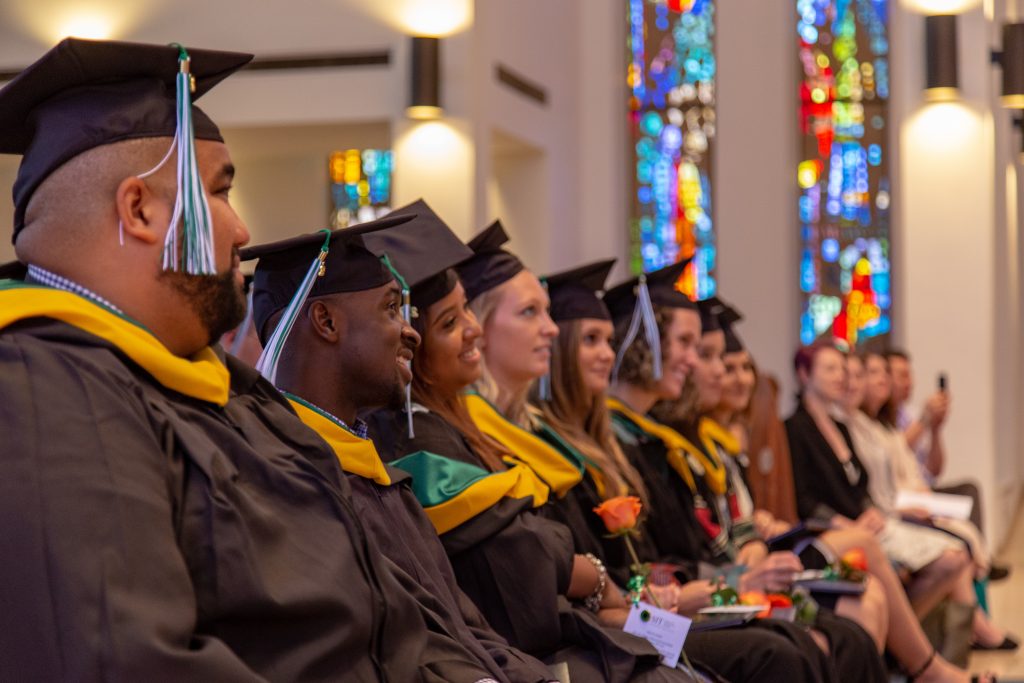
BRATTLEBORO, Vermont – School for International Training has received accreditation for three innovative new global master’s degrees in Diplomacy & International Relations; International Education; and Global Health Policy, Administration & Management.
The Vermont-based SIT Graduate Institute received its accreditation from the New England Commission of Higher Education, the regional accreditation agency responsible for colleges and universities in New England. The one-year Global MAs are delivered entirely abroad, with coursework in SIT centers around the world capped by students’ final practica, which, for most programs, may be completed in the U.S. or abroad.
The new MAs launch in September, led by faculty in the U.S., South America, Europe, the Middle East, Southeast Asia, and Africa, who will guide students through programs designed to develop leaders who can respond to some of the most critical global issues of our time, including global health crises, economic inequality, natural resource degradation, and political and ethnic conflict.
“These one-of-a-kind global degrees build on SIT’s nearly 90-year history of training the next generation of innovative, compassionate global leaders at a time when the world faces unprecedented challenges,” said SIT President Dr. Sophia Howlett. “Our dedicated faculty around the world have carefully designed these programs to help students learn to tackle urgent issues of the day in every corner of the globe and turn those skills into careers.”
The new degrees expand on SIT Graduate Institute’s stable of other accredited global MAs in Climate Change & Global Sustainability; Development Practice; and Humanitarian Assistance & Crisis Management, also based in cities around the world.
SIT also offers low-residency master’s degrees in Sustainable Development, Peace & Justice Leadership, TESOL, International Education, and a self-designed degree in Intercultural Service, Leadership & Management, putting SIT at the forefront of global institutions sending effective leaders, professionals and change-makers into the world.
Many of SIT’s graduates go on to work in high-level positions with organizations such as the United Nations, nongovernmental organizations, and major foundations across the globe.
To learn more about SIT Graduate Institute programs, visit our website. To learn more about the School for International Training and its programs for students at every age on every continent, see SIT’s website.
Senegal alumna takes home prize for outstanding research
Eleven SIT Study Abroad alumni presented undergraduate research at the 2020 Human Development Conference, Feb. 21-22, at Notre Dame University’s Keogh School of Global Affairs. Among them was SIT Senegal alumna Tyeesha Webber of Howard University, who was awarded the Rev. Ernest J. Bartell, CSC, Prize for Undergraduate Research on Poverty and Development for her research paper, The Phenomenon of Resilience and Resistance: A deeper look into the development of the informal sector in Sénégal.
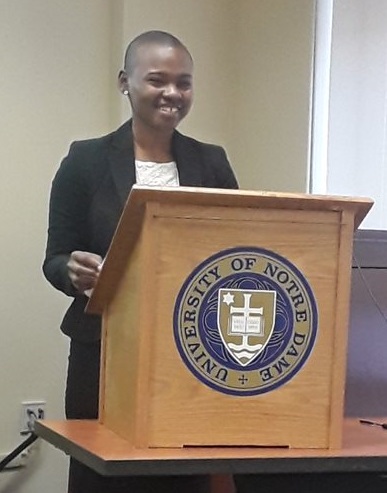
Webber participated in the fall 2019 SIT program Senegal: Global Security and Religious Pluralism.
Notre Dame’s student-led Human Development Conference brings together students from around the world each year to share multidisciplinary, development-focused research. Two $1,000 prizes awarded at the conference recognize outstanding research on poverty and development. One prize is given to a Notre Dam student and the second to a student from another university.
This is the second consecutive year that an SIT student has earned the honor. Last year, Ernest Tan of Yale-NUS College received the award for his research on land use conducted while he was on an SIT Kenya program.
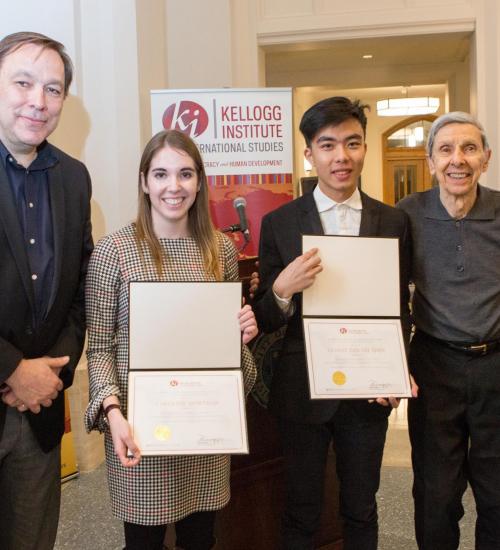
“Once again this year, SIT students have proven their ability to produce exceptional, field-based research at the undergraduate level,” said Dr. Sophia Howlett, president of SIT. “We are immensely proud of these students, as well as the SIT academic and program directors and faculty advisors who helped guide them on their academic paths.”
The theme of this year’s Human Development Conference was “Development on the Move” Students were asked to focus on strategies tied to the dynamic nature of some of the most critical issues of the 21st century, including climate change, resource scarcity, and mass migration.
“These strategies include recognizing the importance of global institutions that are well-equipped to handle issues of transnational and intergenerational justice and policy. However, these strategies also must be underscored by attention to local contexts and insights drawn from grassroots community development efforts,” according to conference organizers.
SIT students who presented research at the conference were:
- Kathrine Fulcher, University of Tennessee, Knoxville, fall 2019 Mexico: Migration, Borders, and Transnational Communities; Effects of Political Socialization on Perceptions Towards Central American Migrants
- Bernice Leveque, Sewanee: The University of the South, fall 2018 Cameroon: Development and Social Change; Community Perceptions of Aid to the Informal Economy: A comparison of cases in rural Haiti and Cameroon
- Cyrus Lloyd, Vanderbilt University, fall 2019 Jordan: Geopolitics, International Relations, and the Future of the Middle East; The Effect of Tribalism on Political Parties
- Cecil Millen, Denison University, fall 2018 Chile: Cultural Identity, Social Justice, and Community Development; Analyzing the Impacts of Conditions and Strategies Employed by the Mapuche and Zapatista Indigenous Movements on the Global Resistance to Neoliberalism
- Crystal Ngo; Sewanee: The University of the South, fall 2018 Panama: Tropical Ecology, Marine Ecosystems, and Biodiversity Conservation; Behavioral Analysis from Payment for Ecosystem Services: Carbon sequestration in Bois Joli, Haiti
- Victoria Puglia, Lafayette College, spring 2019 Uganda: Global Development Studies; Humanitarian Assistance in Protracted Emergencies: Reconceptualizing the role of food aid in Adjumani, Uganda
- Jessica Rosenblum, Washington University in St. Louis, spring 2019 Switzerland: Global Health and Development Policy; HIV Among Migrants in Switzerland and the United States: A comparative analysis of the far-reaching consequences of migrant healthcare access
- Maya Sterling, Vassar College, fall 2018 IHP: Social Innovation: Entrepreneurship, Design, and Development; Shifting the Development Enactment-Evaluation Parallel: The promise of grassroots organizations
- Chenyu Wang, Haverford College, spring 2019 Argentina: Transnationalism and Comparative Development in South America; Regional Employment and Public Transport: A GIS-based comparative case study of accessibility to employment at local industrial park
- Tyeesha Webber, Howard University, fall 2019 Senegal: Global Security and Religious Pluralism; The Phenomenon of Resilience and Resistance: A deeper look into the development of the informal sector in Sénégal
- Jessica Winkler, University of Richmond, spring 2018 IHP: Human Rights: Foundations, Challenges, and Advocacy; Reconceptualizing the International Humanitarian Organization: IOM and UNHCR at Europe’s external gorders
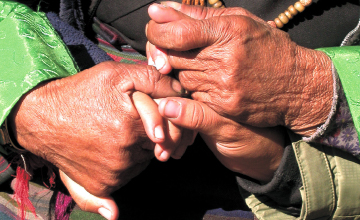
BRATTLEBORO, Vermont – Registration is now open for School for International Training’s first annual Critical Global Issues Symposium, May 14-16 in Brattleboro, Vermont. Nearly 50 scholars – both students and faculty from SIT and partner institutions around the world – will present research on a wide range of issues relevant to identity and human resilience.
Click here to register
“Participants can expect to hear cutting-edge research and gain critical insight on how indigenous and marginalized people are exploring what it means to be different and equal in a world complicated by conflict, climate change, economic disparities, and discrimination,” said Dr. Sophia Howlett, president of School for International Training (SIT). “Our goal with this symposium is to advance important dialogue in these areas.”
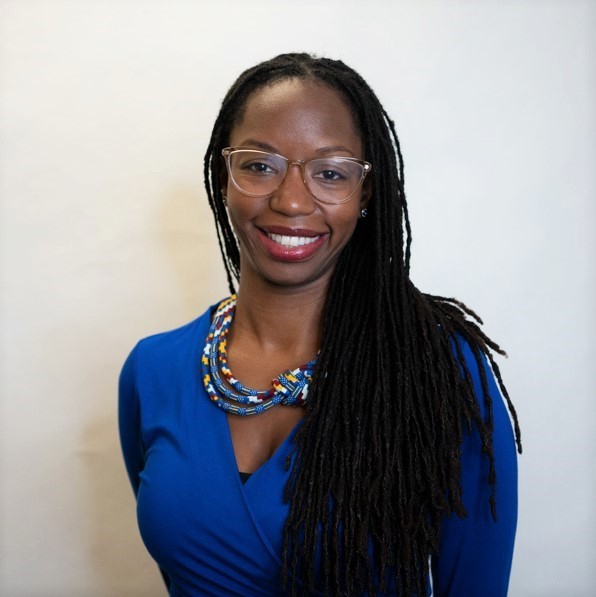
SIT is proud to welcome urbanist Elizabeth Clay Roy as keynote speaker for the event. Roy has more than 15 years of experience in participatory planning, coalition building, and collaborative policy making. She has led campaigns from the neighborhood to national level, and is now executive director of TakeRoot Justice in New York City. She is also a 2001 alumna of the SIT International Honors Program Cities in the 21st Century, which took her to India, South Africa, and Brazil, and spurred a lifelong connection to work in India.
The symposium is the first in an annual series planned by SIT to address seven critical issues areas. All of SIT’s more than 80 undergraduate and 11 graduate programs are developed around a framework of the most critical global issues (CGIs) of our time — challenges that transcend borders to touch every human on the planet. The other issues are Climate & Environment; Development & Inequality; Education & Social Change; Geopolitics & Power; Global Health & Well-being; and Peace & Justice.
“We have developed this framework so that the next generation of leaders has the expertise and intercultural understanding to engage multiple identities, perspectives, and cultures in respectful, enduring, and meaningful responses,” said Howlett.
Presentations at the May symposium will cover a wide range of topics, among them: music and popular resistance; understanding the gender spectrum in a binary world; reimagining church in post-genocide Rwanda; political Islam in post-revolution Tunisia; protest, voting, and social mobility in South Africa; and indigenous women in resistance to extractivism in the Ecuadorian Amazon.
With a modest registration fee, free transportation options, and low-cost accommodations, SIT hopes to make this important conference accessible to all.
Click here for more information and to register.
After studying in Africa, “I came back to the U.S. all fired up”
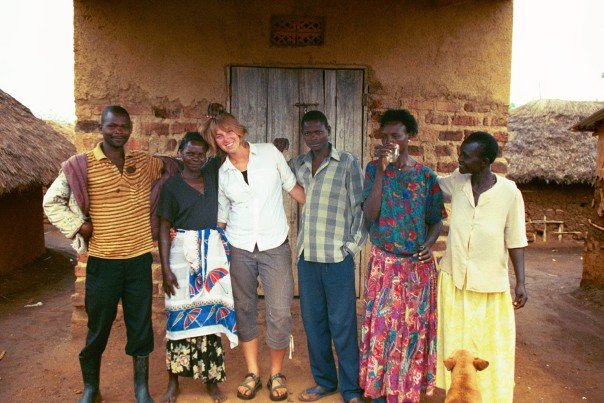
Janessa Goldbeck, LGBTQ ex-Marine captain and a first-time U.S. Democratic candidate in one of the most hotly contested congressional elections of 2020, says her time studying abroad with SIT’s Uganda: Global Development Studies showed her how to face enormous challenges – and overcome them.
The experience, she says, changed her life and set her on a career path that took her straight to Washington, even before she graduated from university. “My time in Uganda taught me how we can all have a role not just in changing the country, but in changing the world,” says the 34-year-old. “I came back to the U.S. all fired up.”
In 2005, when Goldbeck went to Africa, she had never studied abroad before. “I had been backpacking in Europe but this was completely different,” she says. “SIT had us doing some fieldwork in western Uganda. We were dropped off in pairs in a remote village where many of the kids had never seen a white person before, and told to help plan to build a well.”
My time in Uganda taught me how we can all have a role not just in changing the country, but in changing the world.
The undertaking proved extremely difficult. “We went in with solutions instead of asking questions and really hearing what these communities needed,” she says. “I learned the best way to get something done was to actually listen and then work to amplify people’s voices. That lesson really stuck with me.”
An excursion to a neighboring country led by SIT also led to a pivotal moment. “In Rwanda, we visited a genocide memorial, and that’s where I heard about what was happening in Darfur,” Goldbeck says. “It was a huge memorial, with the words ‘never again’ painted on the wall, but in Sudan, not far away, atrocities were still happening.”
After returning to the U.S., Goldbeck, while still a student at Northwestern University, began traveling to Washington to lobby against war crimes in Darfur as a human-rights activist. “My time in Uganda taught me that the U.S. could have a role in stopping genocide,” she says.
It was the first time I saw people who lived in fear, and I saw how important it was to stand up for LGBTQ rights.
Her time in Africa also opened her eyes to the perils overseas of being LGBTQ. “When I was over there, I wasn’t out yet,” she says. “I didn’t feel a lot of pressure in the U.S., but in Uganda, it was illegal to be LGBTQ. One of the other students in our program was gender-fluid, so we found a safe place, a coffeehouse, to go to. It was the first time I saw people who lived in fear, and I saw how important it was to stand up for LGBTQ rights.”
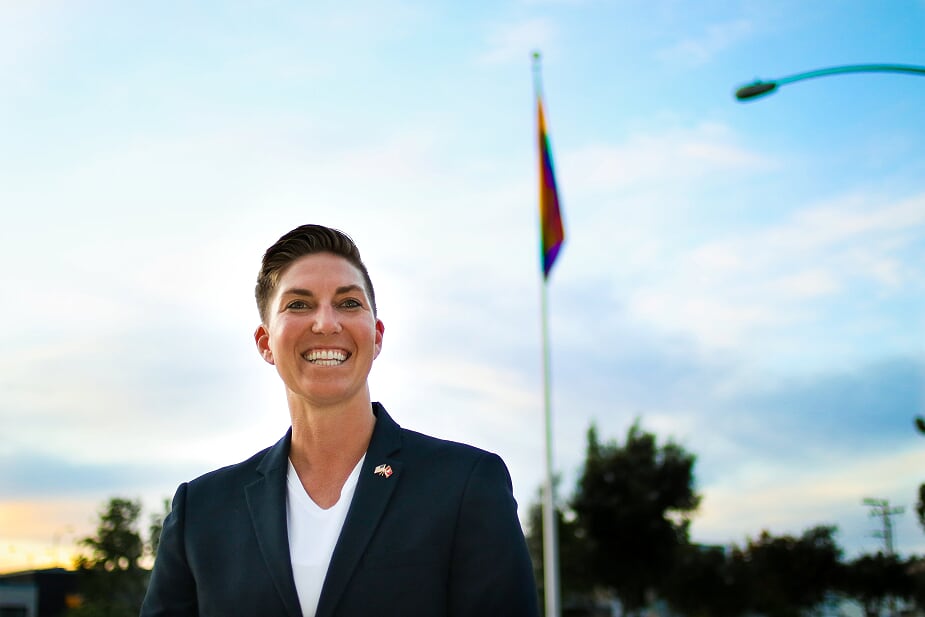
Following graduation, and for the next several years, Goldbeck directed high-level advocacy and media campaigns focused on the prevention of mass atrocities in Sudan, the Democratic Republic of Congo, and Myanmar – much of it inspired by her experiences with SIT. She also worked to mobilize U.S. citizens to pass state and federal legislation to fund peacekeeping efforts, enforce sanctions, and protect civilians around the world.
“What SIT’s sustainable development program taught me was so key. I learned that there are good and bad ways to offer aid and create programs that might help people, but unequivocally, we can say that investing in our allies and partners, even in unstable nations, is one of the best ways we can offer global change.”
Goldbeck notes that while a lot of Americans believe the U.S. spends exorbitantly on foreign aid, “it’s actually less than 1 percent of our entire national budget,” she says. “It’s an investment in our partners and allies to make sure they have options, that instead of turning into extremist groups, they can have a better life, attend schools, have health care, learn how to turn sunlight into energy, safeguard their water and sanitation – all of those are in the interests of America and our allies.”
In 2012, she was named to the “99 under 33” a project of Diplomatic Courier magazine, which ranked the 99 most influential foreign policy leaders under age 33. That year, Goldbeck took a 4,200-mile solo cross-country bicycle ride across the U.S., meeting with elected officials, civic leaders, nonprofits, and members of the media to focus national attention on how international development keeps America safe.
What SIT’s sustainable development program taught me was so key. I learned that there are good and bad ways to offer aid and create programs that might help people …
In 2012, the Encinitas, Calif., native also went to Officer Candidates School in Quantico, VA, joining the U.S. Marine Corps. During her time in training, she participated in a government study that allowed women to volunteer for combat courses, ending the repeal of the Combat Exclusion Policy and leading to the integration of women in military combat, which opened up all jobs to military women.
Goldbeck served in the United States, Norway, and Romania. In 2016, she was promoted to the rank of captain and also served as a Uniform Victim Advocate, representing service members who had experienced sexual assault. As President Donald Trump was elected to office, she watched his inauguration from a chow hall in Romania with American allies, where she worked to support NATO operations, engaging in live fire training exercises. “Our relationships abroad are so important,” she says. “These are my brothers and my sisters.” Before leaving active duty in fall 2019 to run for Congress, she was awarded the Navy and Marine Corps Achievement Medal.
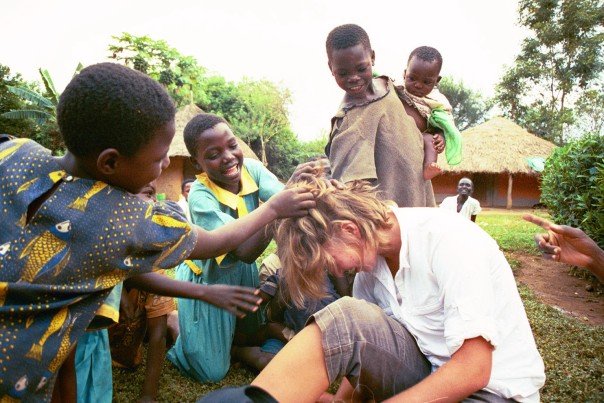
These are exciting times for Goldbeck as she runs for a congressional seat in the 53rd district in California, which includes eastern San Diego and the eastern suburbs, where she recently bought her first home. Goldbeck says she is the product of America’s progressive policies: “My mom was a public school teacher my dad drove a tow truck. My time with SIT in Africa was funded by Northwestern’s private grants program, an endowment. I bought my home with a VA loan [a mortgage backed by the U.S. Department of Veterans Affairs]. All of these things are the direct result of progressive policies that allow people access to upward mobility. And they have given me the ability to make my life.”
I think when you serve in the military, which is a working-class institution, you see so many people join the Marine Corps to better their prospects, to own a home, go to college and have health care.
If elected, Goldbeck says she plans to continue to fight to improve Americans’ lives. “I think when you serve in the military, which is a working-class institution, you see so many people join the Marine Corps to better their prospects, to own a home, go to college and have health care,” she says. “These are things that are really universal for people across the county.”
She also believes in fighting climate change. “I learned on the Hill that veterans are very effective messengers on the environment and public lands are very popular across partisan lines. It taught me that you always can do things to move the needle, even when you’re dealing with forces opposed to conservation or tackling the climate crisis.”
Goldbeck is running against more than a dozen other candidates in California, including Sara Jacobs, the granddaughter of Qualcomm billionaire Irwin Jacobs, a deep-pocketed Democrat who has spent millions on elections. But with a recent endorsement from VoteVets, a political action committee representing U.S. veterans, and a splashy article in BuzzFeed News just after announcing her candidacy, Goldbeck has already shown she can stand out in a crowded field.
“I was an openly gay progressive woman in one of the most conservative organizations in America and I was still able to be effective and successful and liked by my peers,” she says. “I also think that as a Marine Corps officer leading sometimes hundreds of people under her charge is invaluable experience for anyone running an effective office on the Hill. I know how to pass bills and I think it’s important to have more veterans in Congress.” Only seven women veterans now serve in Congress.
Even so, Goldbeck knows the rush to fill the congressional seat vacated by California Democrat Susan Davis — who announced in 2018 that she would not be seeking re-election, will not be easy. After Davis’s nearly 30 years in office, her abrupt departure has triggered a free-for-all in the lead-up to the March primary. Goldbeck says she recently had the opportunity to speak with Davis and received some advice that echoed the lessons she had learned at SIT. “My congresswoman told me the most important job for a member of Congress is to listen and to be present, and to allow people’s voices to be heard,” she says.
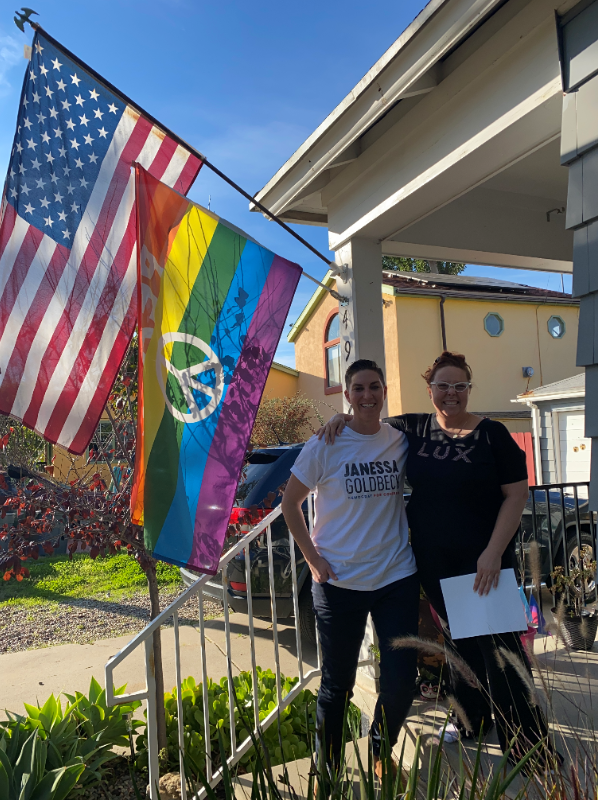
Transferring lessons learned abroad to America’s leading aerospace agency
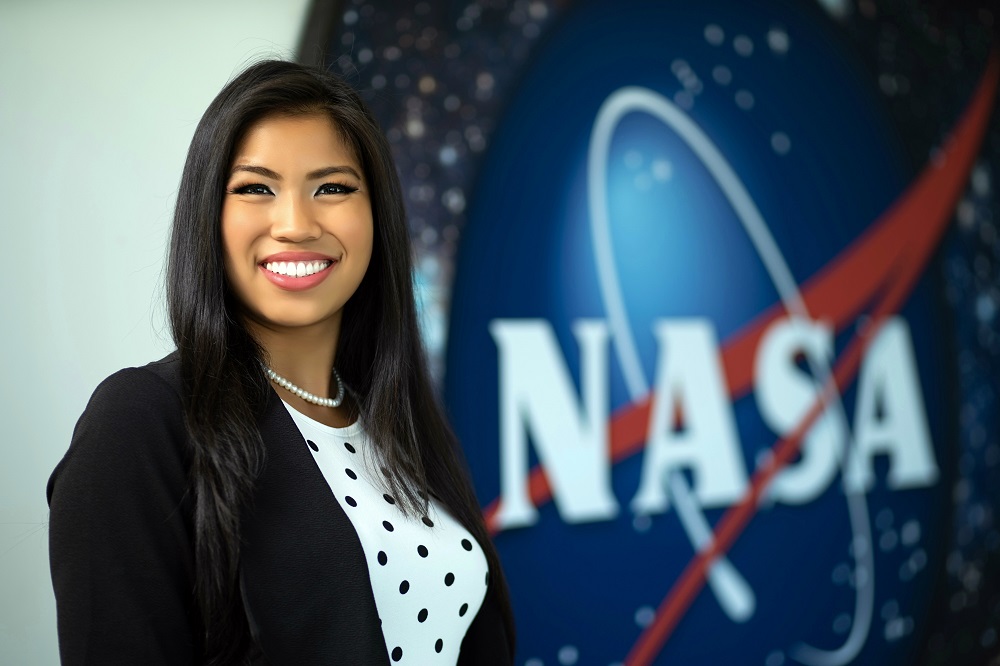
By Alyssa Kaewwilai
This past year I have been graced with more amazing, life-changing opportunities than I could have ever imagined. Through the Benjamin A. Gilman International Scholarship and the Gettysburg College Global Engagement Office, I was given the resources and support needed to study abroad in a nation I had previously merely dreamed of traveling to — the Pacific islands of Sāmoa. Imagine my joy when I was accepted to the School for International Training (SIT) program Samoa: Social and Environmental Change in Oceania, where I could fully adopt and embrace the Pacific culture as my own for an entire four to five months!
As a Reach the World U.S Student Ambassador, I was also given the incredible opportunity to mentor a fifth-grade class in a Spanish immersion school during my travels to Sāmoa, alongside excursions to Hawai’i and Fiji.
What I didn’t expect … was how the abundance of lessons I learned abroad were so incredibly applicable to my summer internship at NASA.
The momentum of opportunities and adventures continued when I was greeted back to the United States with an internship offer at the NASA Goddard Space Flight Center as an Earthdata GIS Software Engineering intern, an offer I use to believe was only obtainable in my wildest dreams!
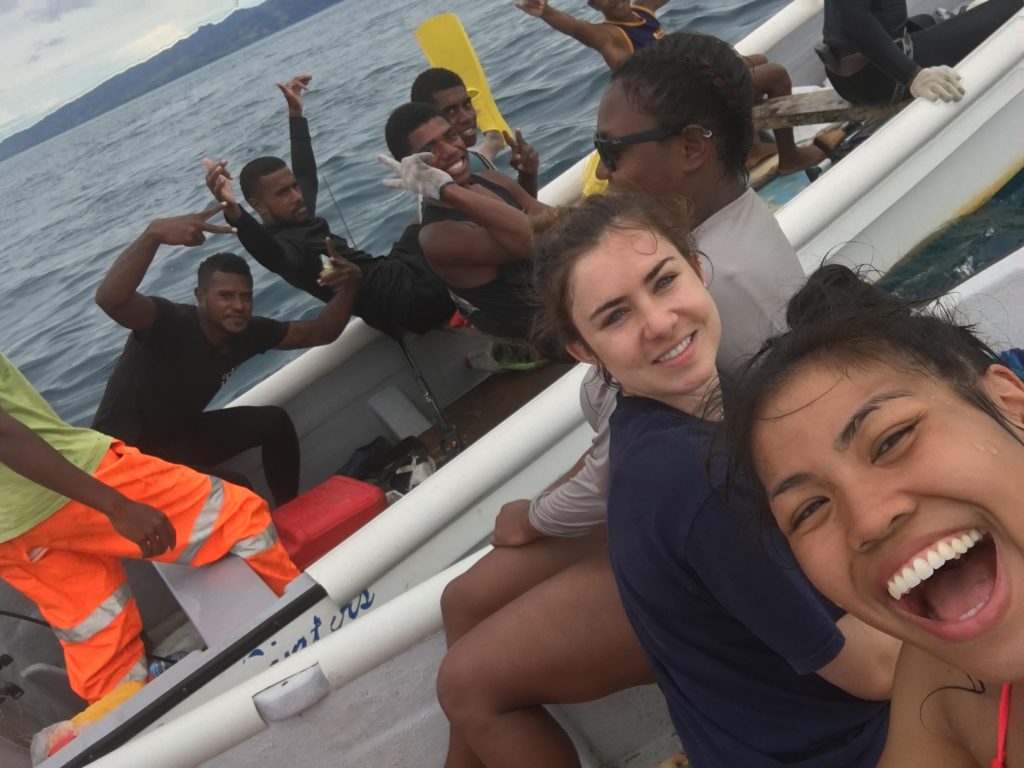
As a first-generation and disadvantaged Thai-American female pursuing a STEM degree, I realized that I suddenly had a sea of opportunity ahead of me. What I didn’t expect, however, was how the abundance of lessons I learned abroad were so incredibly applicable to my summer internship at NASA. These lessons have reshaped my engagement and perspectives of the world and everyday work life.
Problem solving using limited resources
I was faced with a multitude of challenges abroad in an environment that I was not familiar with. Similarly, I had to approach these situations from perspectives I was not used to viewing problems from. I can still distinctly remember my first day after class when I needed to board the bus and find my way home. I was utterly and completely lost and without cell phone reception. Not only had I forgotten the Sāmoan name of the second bus I needed to transfer to, but street addresses are also oftentimes not referred to as they are in America (not that I would have remembered my address anyhow)!
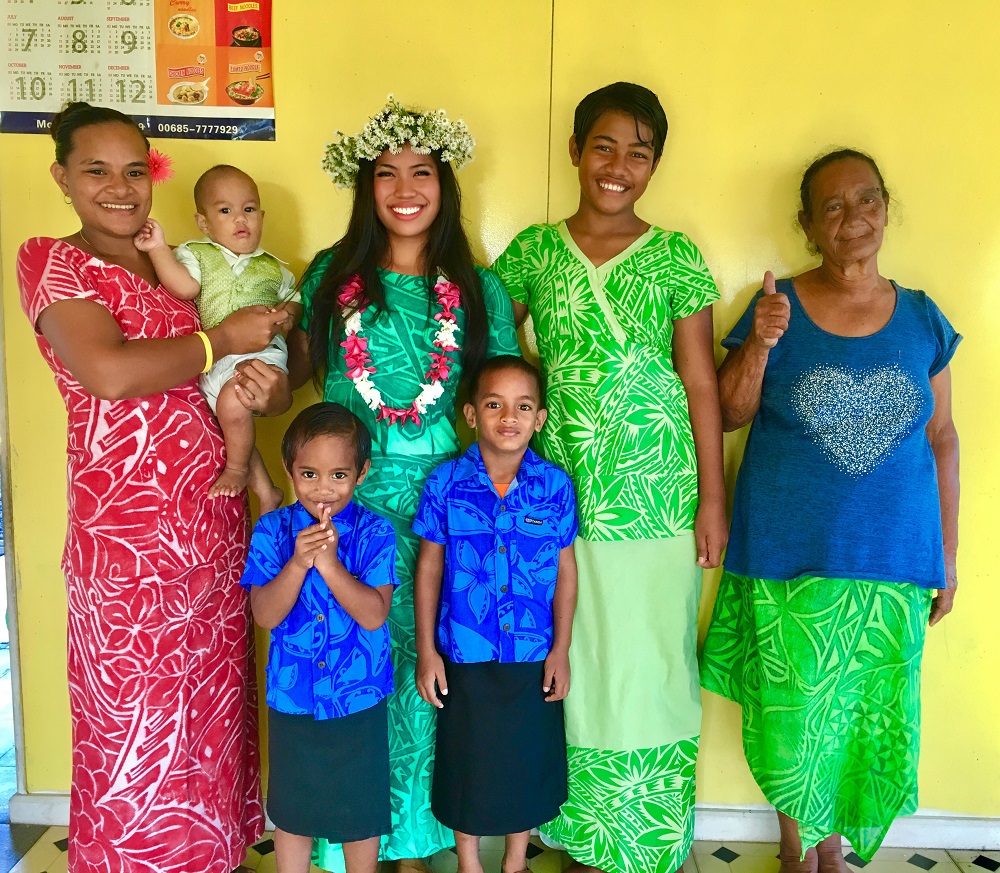
After a prolonged period of panic, I began to calm myself down before evaluating my situation from a third-person perspective. That was when I began to think logically and recall familiar surroundings near my home. Piecing this information together with kind advice from locals, I was miraculously able to navigate my way back to my host family in the Alafua Village.
At NASA, I was oftentimes assigned mini projects where I needed to convert certain file types in order to make them compatible with various software and computer systems. I also used new, unfamiliar programs and Python scripts to manage satellite databases and information. Initially, I would feel small waves of nervousness whenever my attempts to complete a task did not work within the first few trials. However, utilizing my skills of problem solving which I obtained abroad I was able to invoke the help of both discovered online resources as well as other experienced employees. Much like my dilemma commuting home in Sāmoa, I was able to use the available resources at hand and my own intuition to find answers to my problems.
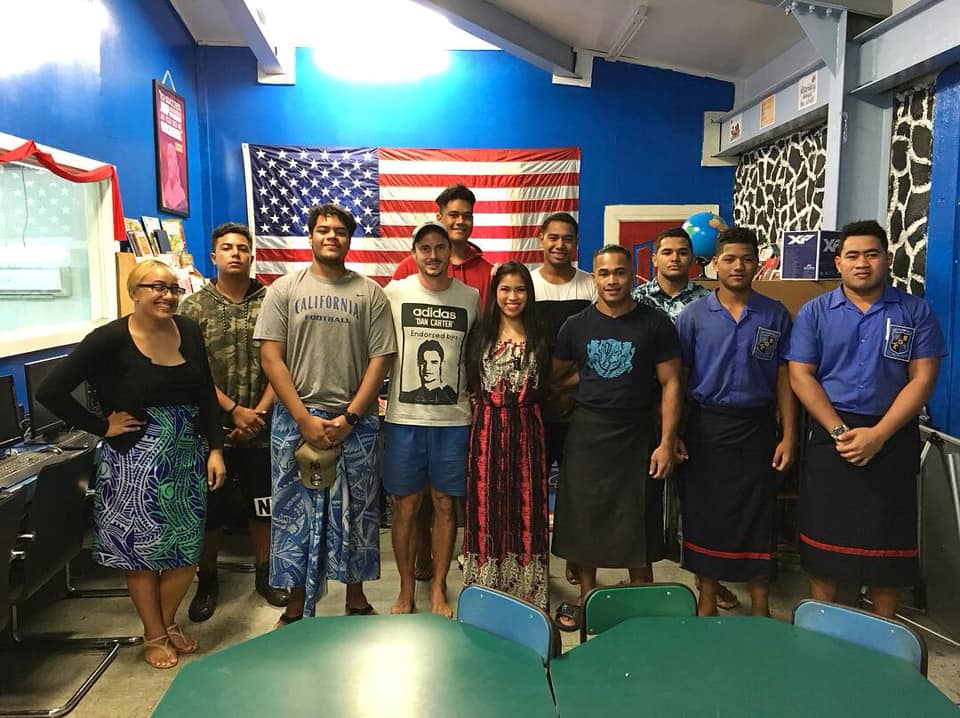
Handle difficult situations diplomatically
It is no surprise that I encountered a plethora of difficult situations during my time abroad; this is to be entirely expected when living in a foreign country for a prolonged period of time. Many times, these issues dealt with miscommunication and misunderstandings with people in which general confusion led to feelings of frustration. Moreover, one of my greatest challenges abroad was trying my best to fully adopt fa’a Sāmoa, the Sāmoan way, in appropriate and suitable ways. This was a particularly difficult task on many personal levels during my week-long stay in the rural village of Amaile.
There were many days when I felt like everything I said and did were either inappropriate in the cultural context or simply considered rude. This was by far the most difficult situation I had during my semester abroad, which oftentimes left me feeling exasperated and isolated. However, I gradually learned to become more patient with myself and others. I slowly began to observe the people in my surroundings more often than I had earlier, in order to see how others around me operated under fa’a Sāmoa. I also learned to be humble and ask my mentors and host family to clarify for me how my actions and words could be improved.
One of my greatest challenges abroad was trying my best to fully adopt fa’a Sāmoa, the Sāmoan way, in appropriate and suitable ways.
I applied these same skills to my internship at NASA. Whenever I was assigned a project task with a steep learning curve, such as working with Python libraries (something I had never done) I would first sincerely tell my mentor that this was a new experience and that I would tackle the task to the best of my abilities. Whenever my attempts atcompleting the project goal failed and made me feel frustrated, I would calm myself down before thinking from a more level-headed perspective: What can I do to improve my situation? This was usually the moment when I would come up with solutions such as learning from past projects or speaking to my advisors about alternative paths to complete the task.
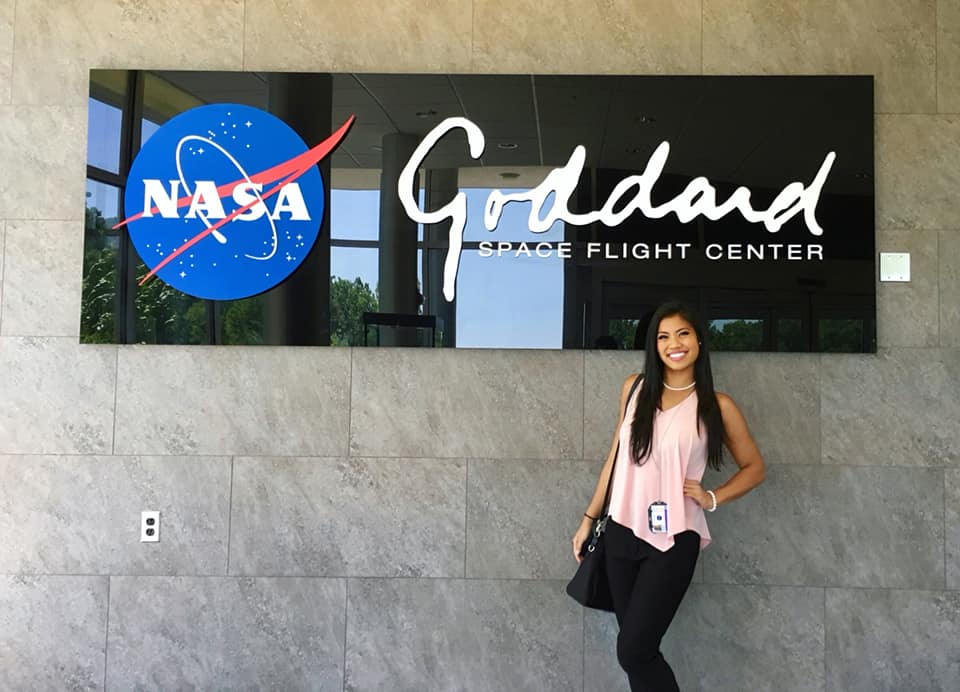
Be a self-reliant, functioning individual
The final portion of all SIT programs encourages students to conduct a month-long independent research project followed by a report. For this process, scholars conduct field work and interviews involving a research topic. I chose to conduct a study of the impacts and possibilities of future sustainable, climate-resilient technologies and urban design in Sāmoa. I needed to be confident in my communication, language, and academic skills in order to have a successful and all-inclusive study of my topic.
I gained an entirely new experience of perseverance in not only gaining real, verbal feedback from candidates around the island but also self-teaching myself an advanced 3D modelling, mechanical engineering software program with a constrained use of internet.
For my specific project, I also set a goal for myself to learn how to use a computer-aided design software called SketchUp in order to render three-dimensional models of future sustainable Sāmoan homes. Through the process of my project, I gained an entirely new experience of perseverance in not only gaining real, verbal feedback from candidates around the island but also self-teaching myself an advanced 3D modelling, mechanical engineering software program with a constrained use of internet.
I utilized these same skills of self-reliance during my internship at the NASA Goddard Space Flight Center. Particularly in the beginning of the internship, there were moments when I felt symptoms of imposter syndrome in which I began to doubt my own skills and intellectual adequacy. I had still felt incredulous that I had earned one of the most prestigious and competitive science internships that a student, especially of my background, could be given.
However, I learned to acknowledge that I had the academic foundation and experience that would help me excel at NASA. Despite the fact that I was working well beyond my comfort zone of geographic information systems and learning new programming as well as data management skills, I knew that the only way to tackle these challenges was head-on. I am strong. I am confident. I am capable of accomplishing any and all goals that I set my mind to …
… and with that mentality, I conquered.

We look back at some of the highlights of an outstanding year
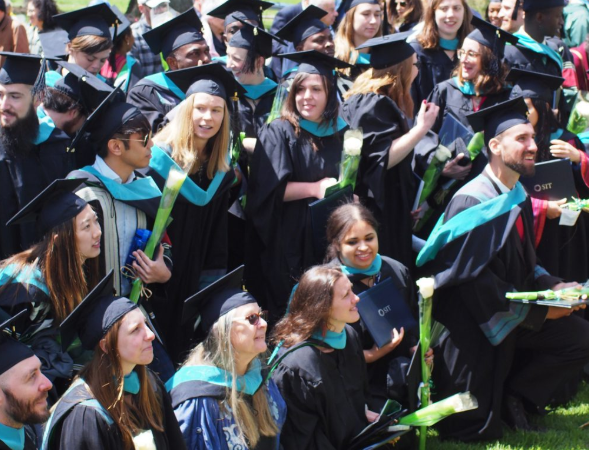
SIT graduates, Brattleboro, Vermont, May 2019
116 newly minted changemakers
The sound of African drums beat a celebratory cadence in both Washington, DC, and Brattleboro, VT, to honor the 116 students who received their SIT Master’s degrees during the 2018-19 academic year. These included SIT’s Global Scholars – students who had fled their home countries due to political unrest or violence. Driven by the growing refugee crisis around the world, in 2016 SIT created five full scholarships. All five students had completed their degrees as of 2019. “SIT was a life-changing experience, where I established an international family with siblings from all walks of life,” said Fadia Thabet of Yemen, an SIT Global Scholar, speaking at commencement. “At SIT, we celebrated our differences before our similarities. We were reminded that we have each other to hold each other accountable. …. My message of hope to you is you.”
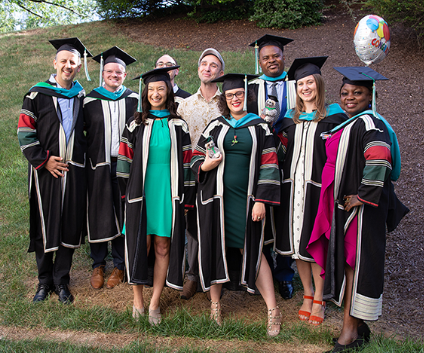
SIT Graduate Institute degree ceremony, Washington, DC, August 2019.
In 2019, SIT also saw its first cohort of nine students graduate from the SIT Graduate Institute’s new Climate Change and Global Sustainability Master’s programs. In addition, eight students graduated from its hybrid Master’s program in Sustainable Development with a focus on international policy and management. “Both of these programs are first of a kind,” said Dr. Ken Williams, dean of SIT Graduate Institute. The slate of unique Master’s degrees are part of an expanding list of international, experiential Master’s programs SIT is now offering.
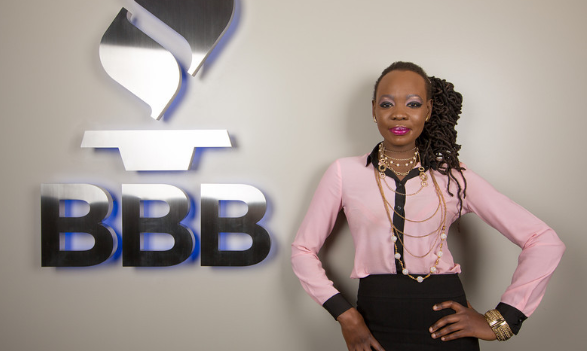
SIT Study Abroad alum and lawyer Yvonne Ochilo
Safeguarding indigenous knowledge
When SIT Study Abroad alum Yvonne Ochilo spent a semester in Kingston as part of the SIT “Jamaica: Gender and Development” program, she gained key insights into how to approach the law. “Western intellectual property laws do not always fit neatly into allowing protections for indigenous peoples, particularly in developing nations,” she told SIT. “In addition, some forms of ‘traditional’ intellectual property such as folklore/stories/songs that are passed down from one generation to the next through oral history have not always been recorded…This presents a challenge to protecting these forms of traditional knowledge.” Ochilo, who recently published a paper on the subject, “Keeping Traditions,” in Intellectual Property Magazine, explains how, through skills learned at SIT and as a lawyer, she has become a “voice for the voiceless.”
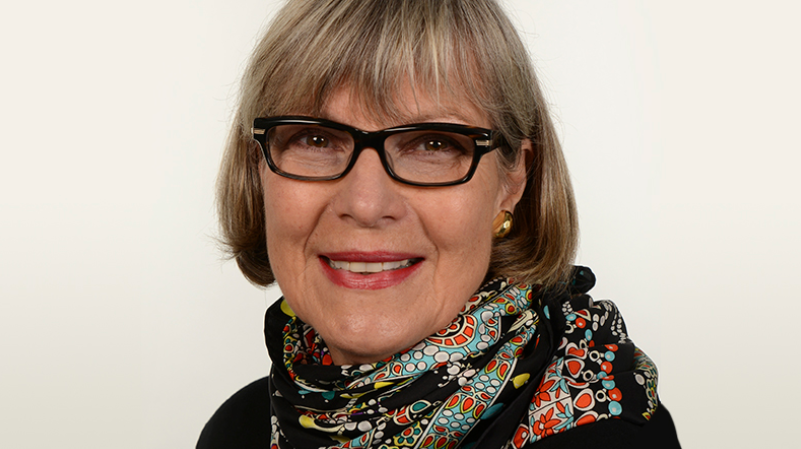
Katharina Zellweger
Breaking down North Korea stereotypes
SIT alum Katharina Zellweger recalls her first trip to North Korea in 1994 before she became Pyongyang Country Director for the Swiss Agency for Development and Cooperation. Since then, she explains, much has changed — and has not — for the people inside North Korea’s borders. “If one says ‘North Korea,’ most everybody thinks of the country’s nuclear weapons program, the Singapore Summit between US President Trump and North Korean leader Kim Jong Un, and starving children. Forgotten are the 24 million ordinary individuals who happen to have been born there, and who are struggling day by day to get by,” she said. Two big changes: The emergence of a middle class — and the rising obsession with mobile phones. And for those who wonder whether North Korea poses a realistic threat to the world, Zellweger offers some wise words in this interview.
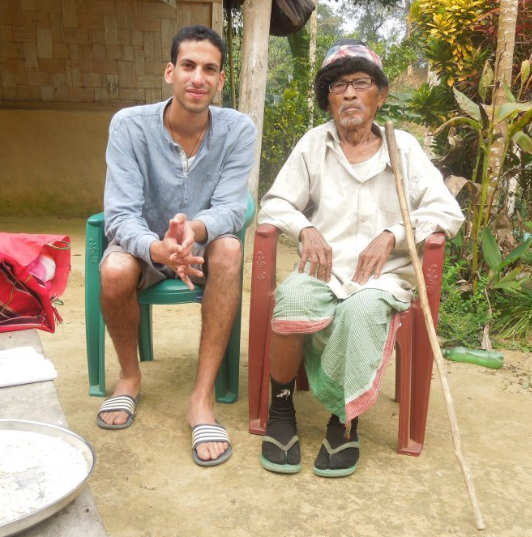
Alice Rowan Swanson Fellow Hadi El Rabbat
Creating ‘knowledge centers’
Hadi El Rabbat was an international business major at Stonehill College in Massachusetts in 2012 when he decided to study abroad on SIT’s International Honors Program, Health and Communities: Globalization, Culture, and Care. Over the course of a semester, he lived in China, South Africa, India. And he realized he was much more interested in international studies than in international business. “Although I had almost finished, I realized [business] wasn’t really my thing. I was interested in a different field, one that had to do with development, peace and justice,” he told SIT. “So I switched to international studies as soon as I returned.” What happened next offered El Rabbat a new vision for his future and led him to explore his origins for the first time.
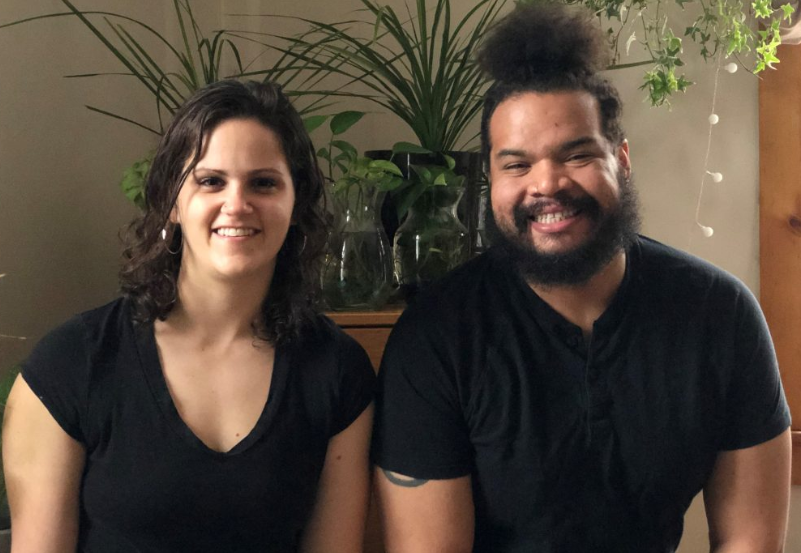
Jordan Ferrick, left, and Fabio Ayala
Sharing restorative justice
SIT students Jordan Ferrick, Fabio Ayala, and Becca Jacobson traveled to Belgium last May to present their work in the field of restorative justice at the International Institute for Restorative Practice annual conference, “Community Well-Being and Resilience.” Just before they left, all three sat down to talk with SIT about their Master’s degree practicums and how they viewed restorative justice and restorative practice. As Ferrick said, “People have been practicing this for centuries. And Vermont is leading the country in restorative justice…But I think [it’s] our take on small, rural restorative justice practices, influenced by our SIT background and our own Millennial perspectives, that combines the old and the new.” In this Q&A, all three reflect on how blending older traditions with fresh approaches has informed their work and their worldview.
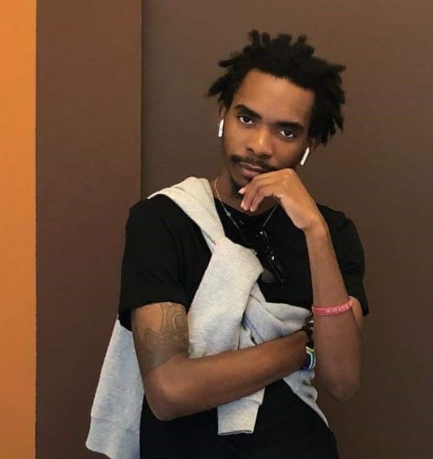
SIT South Africa alumnus Corey Smith
Life plans — with a benefactor’s boost
SIT Study Abroad alum Corey Smith describes how he learned to channel his wide-ranging interests — education, storytelling, activism, racial justice — into writing during the semester he spent in South Africa with SIT. Smith even had a chance to try his hand at international news coverage working as a cub reporter for the Sunday Times in Cape Town. “There were protests every day that we could cover,” Smith said. “We got to really engage with the community, got to really see what it felt like working in a newsroom, having to pitch, having to submit articles in a timely fashion.” Smith also told SIT how he felt when a billionaire CEO suddenly offered to pay off the student loans of his entire 2019 graduating class.
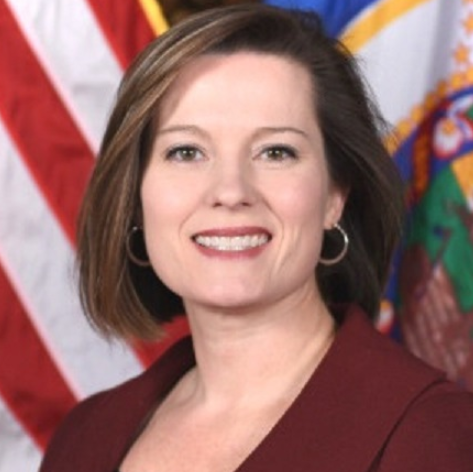
Jaime Tincher, deputy mayor of Saint Paul, Minn.
How lessons inform leadership
From overseeing around 34,000 employees of the state of Minnesota as chief of staff to former governor Mark Dayton to a more recent role as Deputy Mayor of Saint Paul, Minn., Jaime Tincher explains how her SIT experience helped shape her career and leadership style. After studying in Mexico in 1997 and undertaking graduate coursework in conflict resolution, she says she began to pay closer attention to how policy is made and how party politics work. “I saw more clearly the barriers that prevented people from participating in the system, and I wanted to help create opportunities for those who were historically left out,” she told SIT. “I asked myself, is it a true democracy if you’re not knocking down those barriers?”
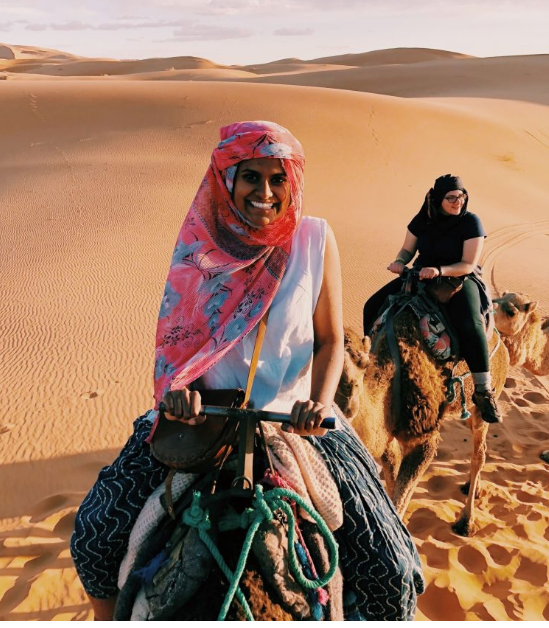
SIT alumna and Notre Dame graduate Melinda Davis
Migration and the Holy See
Notre Dame graduate, Melinda Davis, talks with SIT about her family’s cross-continental journey from India to New Orleans, and how her experiences throughout SIT’s Morocco: Migration and Transnational Identity study abroad program helped her learn to bridge cultural divides to teach English as a second language to Morocco’s young migrant populations as well as Yemeni women. After leaving Notre Dame, Davis’s journey has now led to a fellowship with the Permanent Observer Mission of the Holy See to the United Nations. Her work at the Vatican is opening new doors for her, but much of it builds on what she learned about migration and international peace-building through SIT Study Abroad. Here, she retells how her budding interest in teaching stemmed from this one young student’s remark.
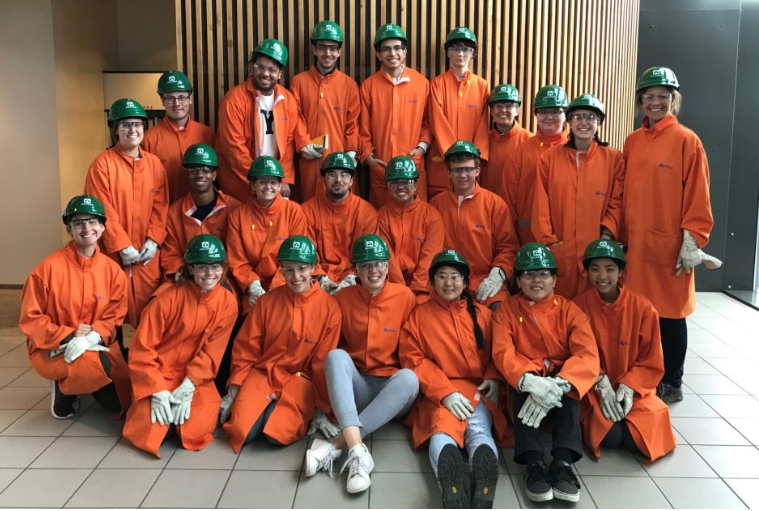
SIT Study Abroad students in Iceland
First net-zero study abroad program
This summer, students with SIT’s Iceland: Renewable Energy, Technology, and Resource Economics banded together to become one of the first-ever study abroad programs to achieve carbon neutrality. Working as a team, they assembled a plan to offset their air and ground travel by planting roughly 220 trees in the greenbelt, or “green scarf,” which surrounds the green-energy city of Akureyri in northern Iceland. “Iceland was once about 25 percent forested and now is only about two percent forest cover, so reforestation is recognized by Iceland to be an important way to achieve its Paris Agreement goals and a carbon neutral future,” noted SIT Academic Director Michelle Stewart. Read on to learn more about what one student from Yale, Nash Keyes, had to say about immersing in a society focused on a sustainable future.
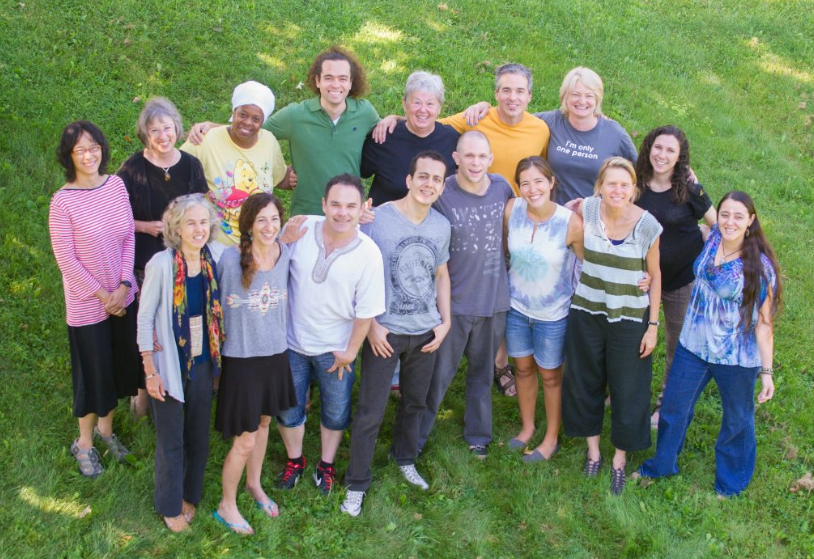
SIT students during their Vermont summer residency for the TESOL MA program
Top in TESOL
SIT was named the No. 1 producer of English Language Fellows in the U.S., with SIT President Sophia Howlett accepting an award from the U.S. State Department at a ceremony this past November. In 2019, SIT also marked the 50th anniversary of the Master’s program that has earned it an international reputation for its experiential approach to teaching English to speakers of other languages, the field known as TESOL. SIT is now offering a certificate program, as well as an online, low-residency Master’s degree here in this popular area of study.
Barduhn is one of three SIT TESOL professors in prestigious U.S. State Department program
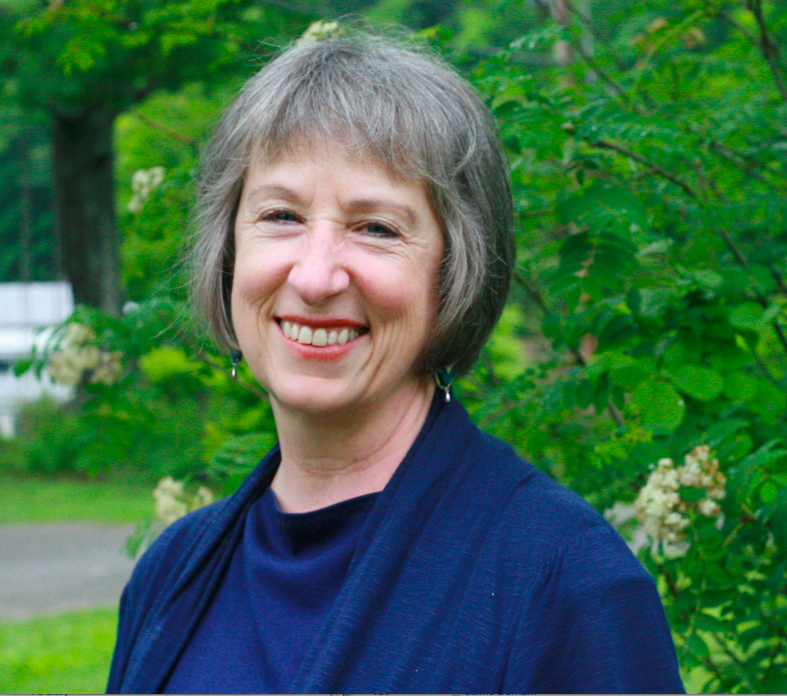
Dr. Susan Barduhn, professor emerita of SIT Graduate Institute in Vermont, was selected by the U.S. State Department for a two-week English Language Specialist project focusing on professional development for English teachers at three universities in Turkey. She also gave the opening plenary speech at the TESOL Turkey conference in Eskişehir.
Dr. Barduhn’s project is one of just 130 that the English Language Specialist Program supports each year. The program is considered the premier opportunity for leaders in the field of teaching English to speakers of other languages (TESOL) to enact meaningful and sustainable changes in the way that English is taught abroad. SIT TESOL Professor Dr. Elka Todeva and Professor Emerita Elizabeth Tannenbam are also EL Specialists.
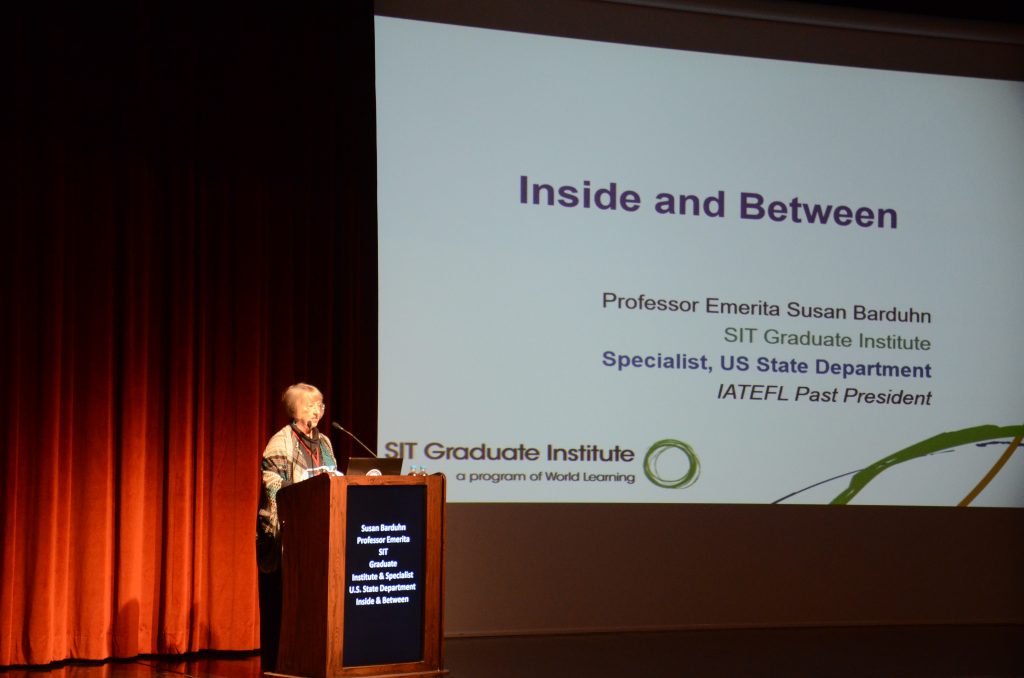
Dr. Barduhn has had an extensive career supporting, supervising, advising and training teachers. She taught English in Colombia, Portugal, and Spain, then spent eight years in Kenya creating and directing the first language institute in sub-Saharan Africa, followed by 15 years in London, before returning to the United States as a professor and chair in the MA TESOL department at SIT Graduate Institute.
She is past resident of IATEFL (International Association of Teachers of English as a Foreign Language), and currently an educational consultant for Consultants-e and TransformELT, among others. In addition to English Language Specialist for the U.S. State Department, she is a Fulbright Specialist, a consultant for the British Council, and an SIT TESOL Certificate trainer of trainers. She is also a member of the World Learning Global Advisory Council. A published author and acclaimed public speaker, she is frequently invited to give keynote addresses at conferences around the world.
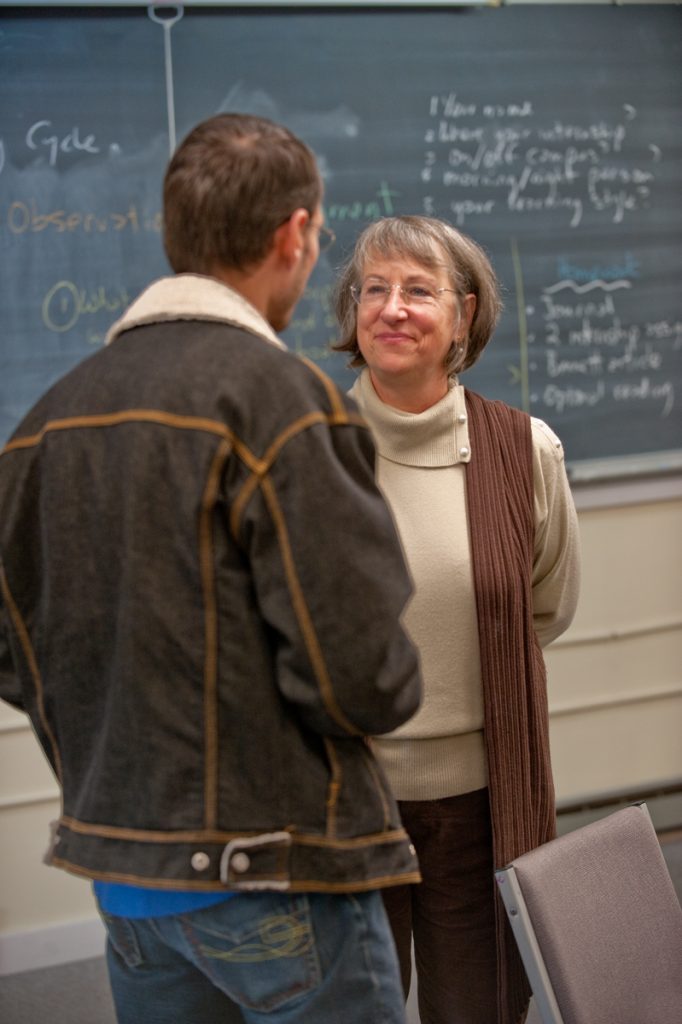
Through projects developed by U.S. embassies in more than 80 countries, EL Specialists work directly with local teacher trainers, educational leaders, and education ministry officials to exchange knowledge, build capacity, and establish partnerships benefiting participants, institutions, and communities in the United States and overseas.
Dr. Barduhn’s most recent project took place at three major state university prep programs in Turkey: Uludağ University in Bursa, Yildirim Beyazit University in Ankara, and Osmangazi University in Eskişehir, which received hands-on training from Dr. Barduhn. At the conclusion of each two-day visit, administrators were better informed about how to support their university’s Continuing Professional Development Unit (CPDU); teaching staff were more familiar with the importance of CPDU and felt less trepidation about playing an active role in their own program’s CPDU; and CPDU staff were exposed to a range of CPDU models and began analyzing and revamping their own CPDU.
Since 1991, the English Language Specialist Program has sent hundreds of TESOL scholars and educators abroad to promote English language learning, enhance English teaching capacity, and foster mutual understanding between the U.S. and other countries through cultural exchange. On assignment, EL Specialists may conduct intensive teacher training, advise ministries of education or participate in high-level educational consultations, and offer plenary presentations at regional, national or international TESOL conferences. These projects are challenging and those selected represent the best of the U.S. TESOL community. In return, the program provides professional development opportunities to help participants experience different cultures and build skills that can greatly enhance their TESOL careers back home.
English Language Specialists are counted among the more than 50,000 individuals participating in U.S. State Department exchange programs each year.
Last month, SIT Graduate Institute and it’s TESOL MA program received an award from the State Department as the institution that has produced the most participants for the English Language Fellows program.
Visit the SIT Graduate Institute website for more information about the SIT TESOL program
For more information about the English Language Specialist Program visit elprograms.org/specialist; call 202-632-6452; or e-mail [email protected].
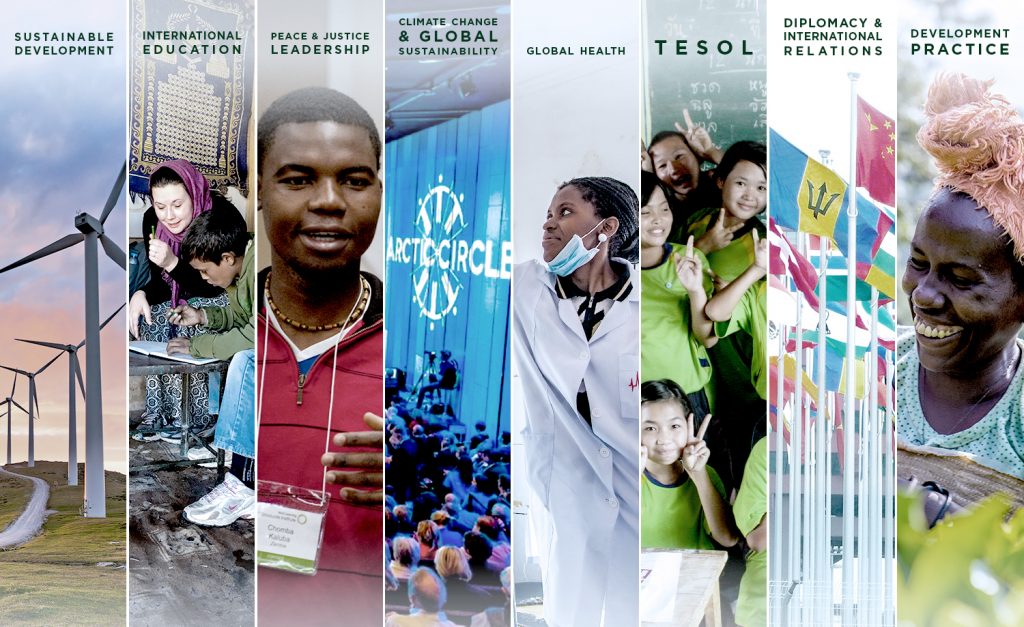
Meet our Global and Low-Residency program chairs to find the MA that’s right for you
This new SIT webinar series presents a great opportunity to learn about SIT’s Global and Low-Residency master’s degree programs.
Global Programs Webinar: Wednesday, January 8 – 9 a.m. (Eastern U.S.) with Dr. Joe Lanning (MA in Development Practice) and Dr. Richard Walz (MA in Climate Change & Global Sustainability)
Low-Residency Programs Webinar: Friday, January 17 – 12 p.m. (Eastern U.S.) with Dr. Bruce Dayton (MA in Peace and Justice Leadership) and Dr. Udi Butler (MA in Sustainable Development)
Global Programs Webinar: Tuesday, January 21 – 12 p.m. (Eastern U.S.) with Dr. Bruce Dayton (MA in Diplomacy & International Relations) and Dr. Sora Friedman (MA in International Education)
Low-Residency Programs Webinar: Wednesday, January 22 – 4 p.m. (Eastern U.S. ) with Dr. Leslie Turpin (MA in TESOL) and Dr. Sora Friedman (MA in International Education)
Global Programs Webinar: Monday, January 27 – 9 a.m. (Eastern U.S.) with Dr. Steve Wandiga & Dr. Azim Khan (MA in Global Health, Administration & Management) and Dr. Bayan Abdulhaq (MA in Humanitarian Assistance & Crisis Management)
Dr. Cheikh Thiam will lead SIT’s large and diverse portfolio of sub-Sahara programs
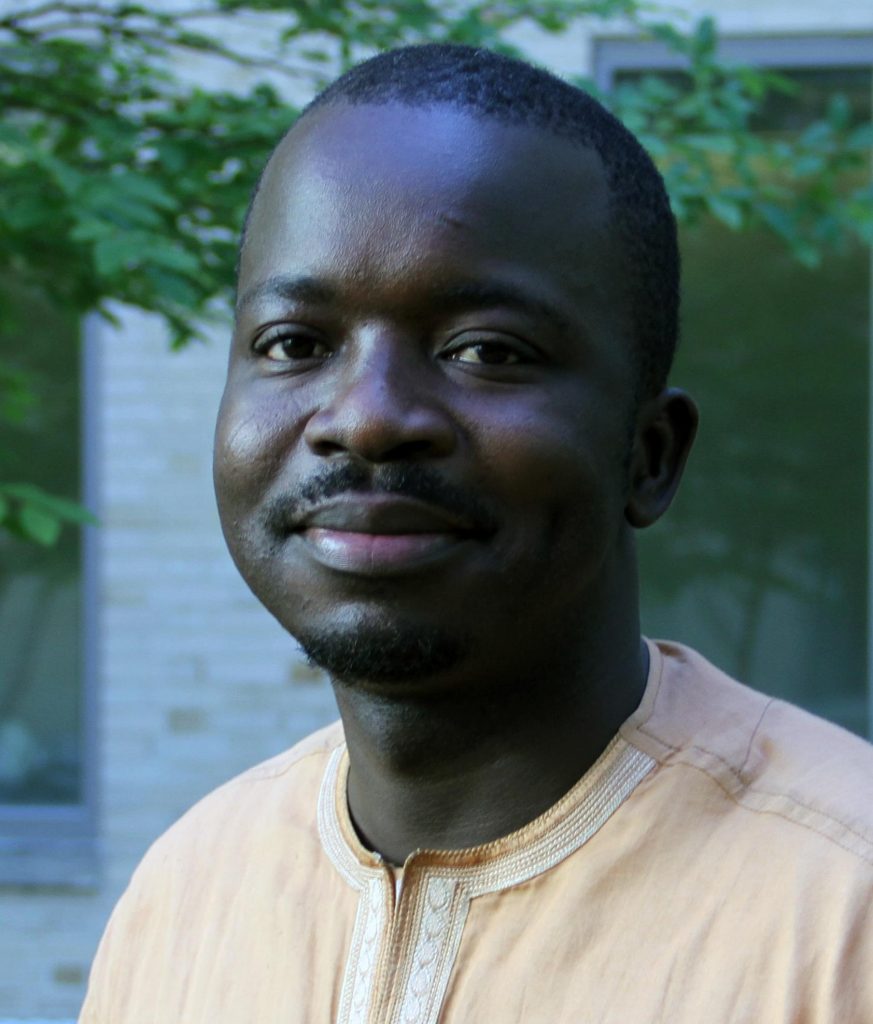
BRATTLEBORO, Vermont – Dr. Cheikh Thiam, academic director for SIT Study Abroad in Senegal, will become SIT academic dean for Africa South of the Sahara starting Jan. 1, 2020, School for International Training announced today.
Thiam co-leads SIT Study Abroad programs in Senegal focused on global security and religious pluralism, and designed a pioneering undergraduate program that explores how hip-hop artists and cultural influencers are redefining Africa’s future. “I am looking forward to taking on this expanded role at SIT, while drawing from my research examining collective imaginations of being and identity in Africa and the African diaspora in the colonial and postcolonial era,” said Thiam, who has directed study abroad programs in Senegal for the past 10 years.
As academic dean, Thiam will lead one of the broadest portfolios of programs in Africa of any U.S. institution. SIT’s multidisciplinary portfolio of accredited undergraduate programs covers nine sub-Saharan countries and encompasses subjects such as biodiversity and wildlife management, multiculturalism and human rights, health policy and social transformation, and even offers a journalism program. Several of SIT’s Global MA programs also have components based in Africa, including climate change in Tanzania, humanitarian assistance in Uganda, global health in Kenya, and international diplomacy in South Africa.
Cheikh’s outstanding scholarship and network of relationships across Africa and the United States, combined with his passion for student-centered study abroad classrooms, make him an outstanding addition to our leadership team.
— SIT President Dr. Sophia Howlett
Thiam brings to his new role a strong background in U.S. higher education. He has an MA and a PhD in comparative literature from Binghamton University, an MA in French from the University of Provence in Aix-en-Provence, as well as a BA from Université Cheikh Anta Diop in Dakar. He served as associate professor of African American studies, African studies, and French at The Ohio State University. He is the author of “Return to the Kingdom of Childhood: Re-envisioning the Legacy and Philosophical Relevance of Negritude,” published by Ohio State University Press in 2014.
Thiam also was the editor of Negritude Reloaded, a special issue of Journal on African Philosophy, an associate editor of Research in African Literatures, and has published widely in literature and philosophy journals such as Ethiopiques, West Africa Review, La Revue Africaine, La Revue du Graat, French Review, Research in African Literature, Dalhousie French Review, and Journal on African Philosophy. He recently completed a second book manuscript, “Epistemologies from the South: Negritude, Modernity, and the Idea of Africa.”
In announcing his appointment, SIT President Dr. Sophia Howlett said, “Cheikh’s outstanding scholarship and network of relationships across Africa and the United States, combined with his passion for student-centered study abroad classrooms, make him an exceptional addition to our leadership team.”
Thiam will join Howlett’s Council of Deans, a group that oversees SIT’s undergraduate programs, the SIT Graduate Institute, and SIT’s stable of more than 80 study abroad programs in Asia and the Pacific, Europe and the Middle East, Latin America, and the International Honors Program.
Thiam succeeds Dr. Daniel Lumonya, who has served as academic dean for the region since August 2015. Prior to that time, Lumonya was SIT academic director in Uganda. Lumonya completed his PhD in development sociology at Cornell University. “I have had the chance to work with Cheikh on our evolving programs in the region and I welcome the depth of experience he brings to this position,” Lumonya said.
Lumonya is leaving to pursue a career in research, teaching and community service from his country, Uganda. “I want to thank Dan for his dedicated work and stellar contributions to SIT, both as an academic director and dean,” Howlett said. “We will all miss him.”
National award caps a half century of training teachers at SIT
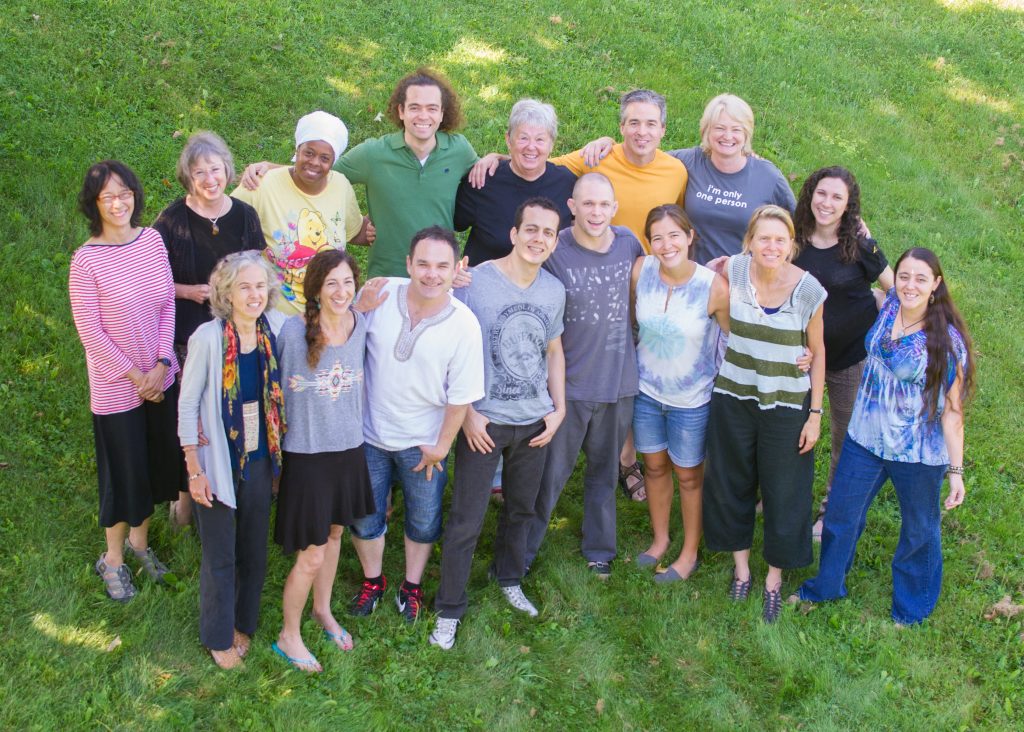
BRATTLEBORO, Vermont – When the U.S. State Department celebrated School for International Training as the top producing institution of English Language Fellows, it capped a watershed year for the SIT TESOL program.
The award, presented to SIT President Sophia Howlett during a Washington, DC, ceremony on Nov. 6, put SIT as first among seven institutions nationwide that have produced the highest number of participants for the prestigious fellowships. Of all the State Department fellows named since 2006, the year the agency began to keep track, 57 have been SIT alumni.
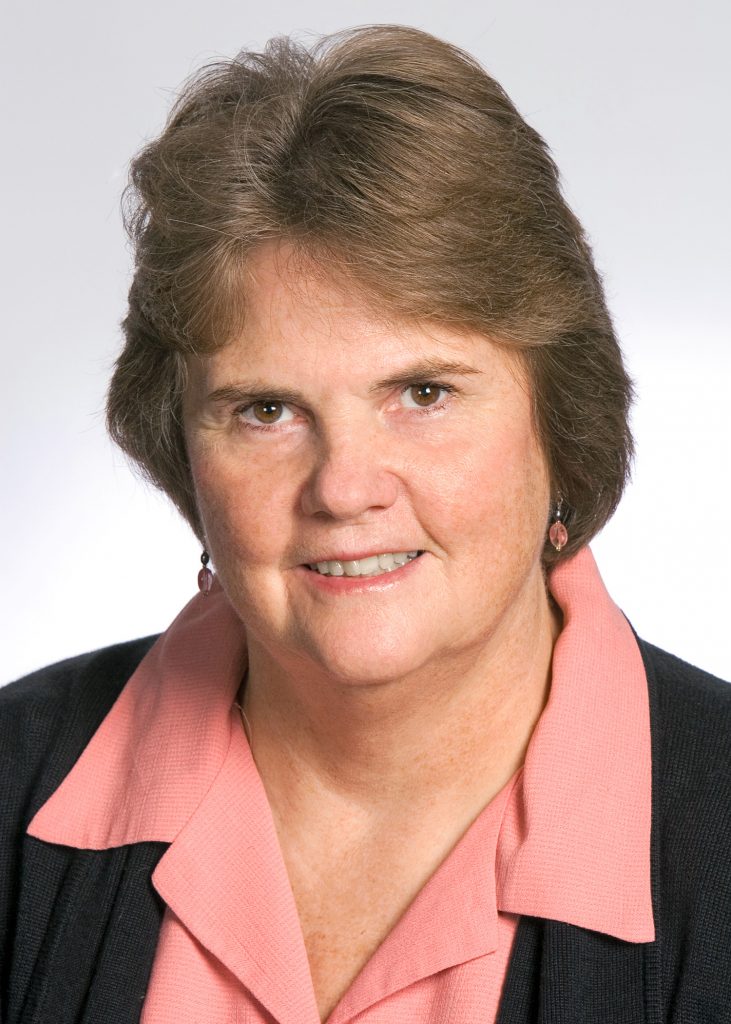
SIT TESOL Professor Emerita Diane Larsen-Freeman, herself a leading figure in the field, said she was “pleased, but not at all surprised” by the State Department award. “As I travel, I have encountered many [English Language Fellows], and I have witnessed their professionalism and their dedication to the students they serve. These qualities are also evident in SIT alumni, who, in addition to their excellent teaching, adaptability, and intercultural competence, have learned how to learn from experience.”
… in addition to their excellent teaching, adaptability, and intercultural competence, [SIT TESOL alumni] have learned how to learn from experience.
The award also comes as SIT marks the 50th anniversary year of the MA program that has earned an international reputation for its experiential approach to teaching English to speakers of other languages, the field known as TESOL. As one of the oldest language teacher education programs in the country, SIT has at the same time been on the cutting edge of the field—a fact that holds true today as much as it did when the program began a half century ago.
Leslie Turpin, chair of the MA TESOL program at SIT, said she was proud of the achievements not only of alumni, but also of the TESOL faculty members over the last 50 years “who have devoted their careers to creating a program that supports students to develop a teaching practice grounded in intercultural competence, self-awareness, reflection on and learning from experience. This award is a testament to the collective commitment of our students and faculty to making the world a better place through their deep love of learning and teaching.”
Roots in Social Justice
Turpin’s comment is a nod to SIT’s roots in social justice, including refugee education and the program’s historic roots in the Peace Corps.
What is today the nation’s leading TESOL program grew out of the training programs for outbound Peace Corps volunteers that started in this quiet corner of Vermont in 1961. “It may surprise many to learn that a small institution founded in southeast Vermont could have a major impact on the field of international education and intercultural exchange worldwide,” SIT Professor Emeritus Alvino Fantini wrote in a recent blog post.
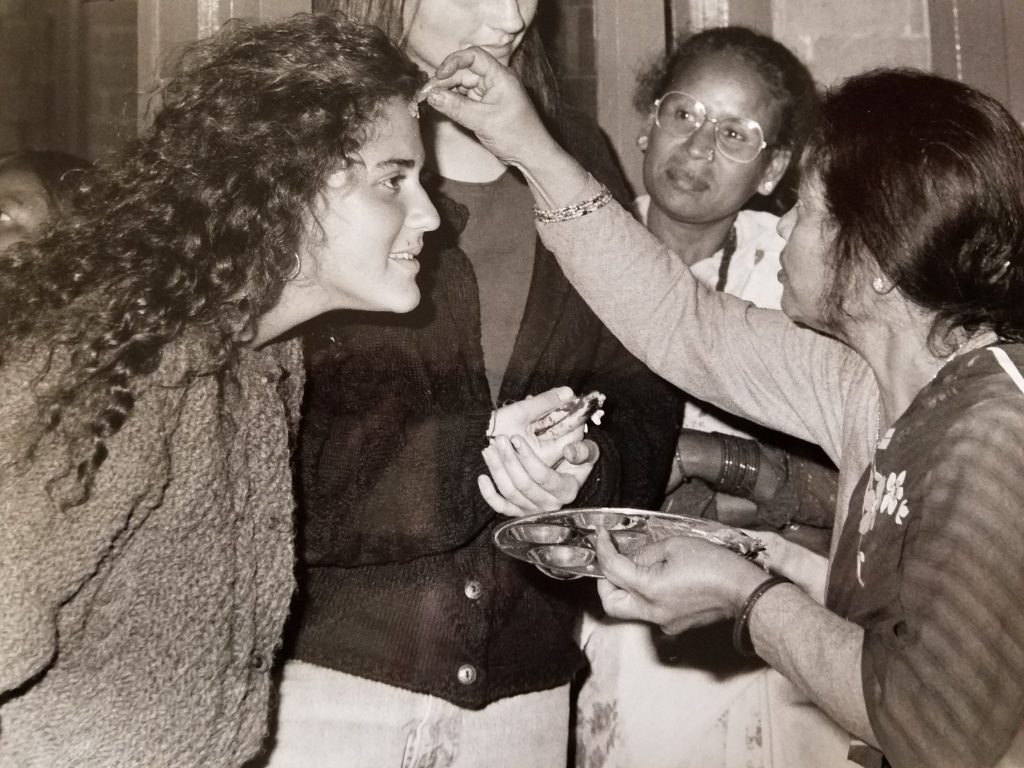
When Sargent Shriver was tapped by President John F. Kennedy to become the founding director of the Peace Corp, Shriver turned to The Experiment in International Living—an organization that had played a formative role in his early life—to help train outbound Peace Corps volunteers. Shriver had been a participant and later a leader with The Experiment, which started in 1932 with a group of students who sailed across the Atlantic with the mission of fostering peace through understanding, communication, and cooperation.
More than 80 years later, The Experiment today takes high school students around the world to live with families, develop friendships, and understand different cultures. But in 1964, the language programs were spun off into a new organization—School for International Training—which today works with undergraduate students on seven continents through SIT Study Abroad, and with master’s level students, including TESOL, through SIT Graduate Institute.
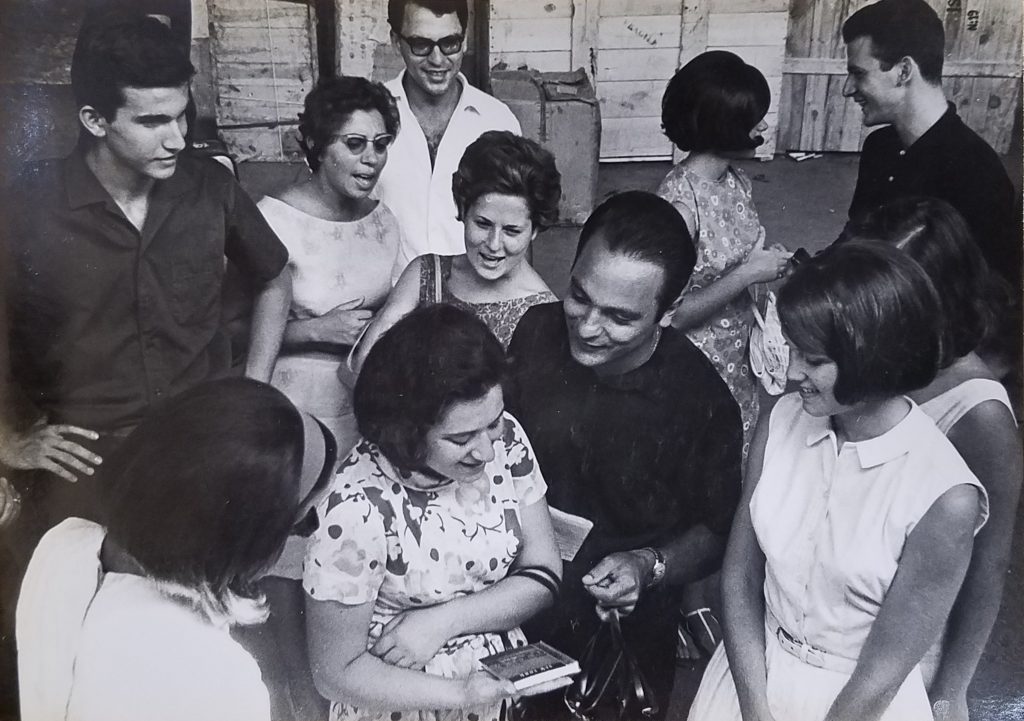
Its vision is one of world peace; its mission is to help build it.
Fantini, who began teaching at SIT in 1964, said today’s TESOL program is a logical outgrowth of SIT’s early experience in teaching foreign languages. “SIT has always focused on enabling learners to communicate in another language in order to be able to participate more fully in another culture,” Fantini wrote.
In other words, as he put it later: “Its vision is one of world peace; its mission is to help build it.”
SIT also has a strong track record in refugee education—which has become one of four new concentrations offered in the MA in TESOL program. From the 1970s through the mid-1990s, SIT TESOL faculty and many alumni worked in collaboration with the NGOs World Education, Save the Children, and SIT’s parent organization, World Learning, to provide extensive education to Southeast Asian refugees living in camps in Thailand and Indonesia prior to their resettlement in the United States.
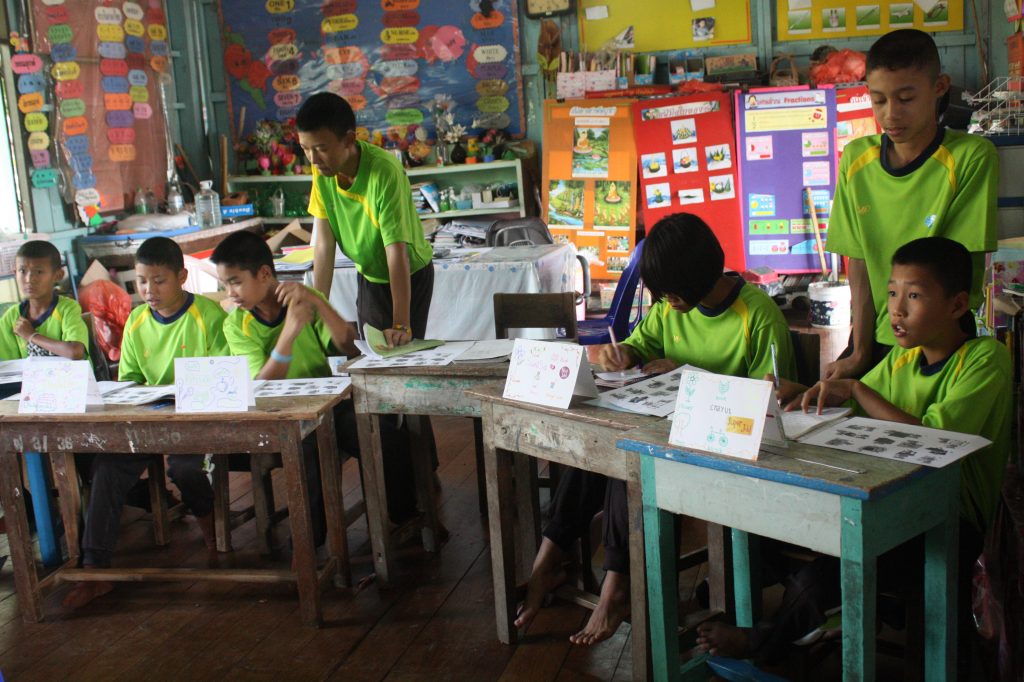
Over a 15-year period, more than 250,000 refugees participated in the programs, which focused on work and school skills, cultural adjustment, English and mother tongue instruction, and services for refugees with learning disabilities.
“The MAT faculty were essential partners in developing and working in these U.S. State Department-funded programs,” said Turpin. “They conducted needs assessments, created and evaluated curriculum and materials, and trained and supervised local teachers (including refugee and Thai and Indonesian nationals). An important by-product of these initiatives was the extension of programs into local, host-country schools and the skill-building of local teachers.”
An Experiential Approach
Fantini calls cross-cultural communication an “open-ended challenge.” SIT’s TESOL program has reflected that through continuous exploration of how best to teach language acquisition and mediation skills and raise cultural and linguistic awareness. But over the years, one constant has remained: the experiential nature of SIT’s pedagogy.
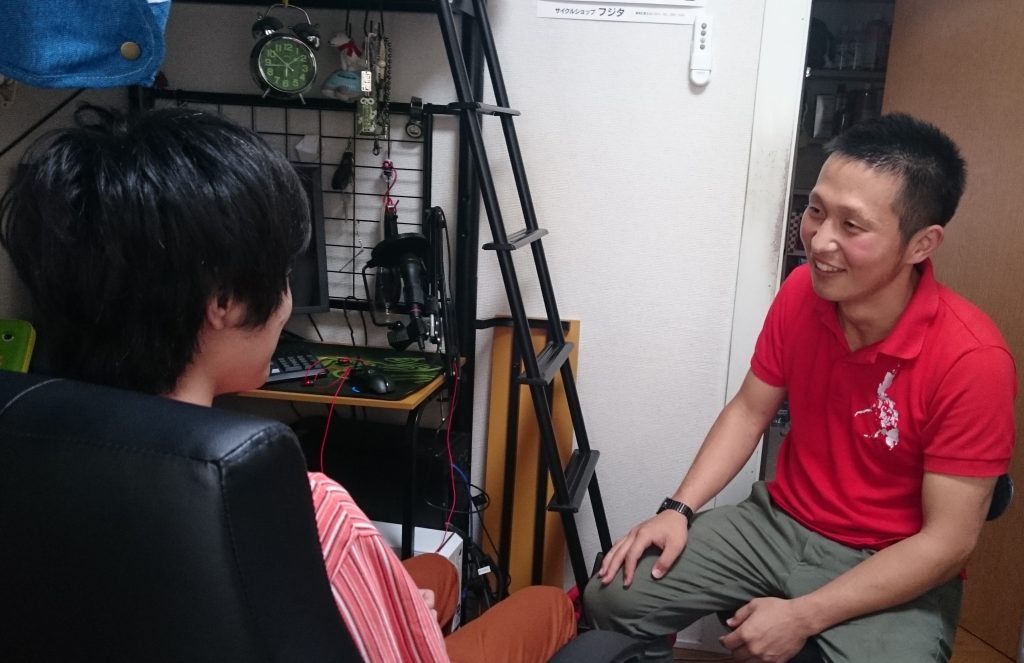
SIT didn’t just teach us how to teach English effectively, but also how to empower people through experiential learning.
It’s an aspect that can catch students from a more traditional educational background off guard. Shinichiro Matsugama came to SIT in 2012 for his MA in TESOL with the intention to return to Japan to become a teacher. “The first day of orientation for the MAT program, Leslie[Turpin] told us ‘It’s a nice day; why not go outside?’ So we went outside and played a game—working as a team to bridge a river using a cup and paper. To me, a person who graduated form a rigid education system in Japan, it felt like a child’s game. I thought, ‘Why should we do this? It’s just playing.’ So, I was kind of irritated.
“But then we went back to the classroom and discussed our observations about what was happening. We talked about our emotions and how we felt. The professors asked us what was happening during the activity and collectively we tried to interpret and learn from our experience. Then the professors asked us what we would do the next time to work more effectively as a team. They explained the concept of experiential learning and they said, ‘Welcome to SIT!’ That was a transformative experience for me.”
Ultimately, SIT’s experiential learning approach led Matsugama to follow a different career path. Today, he has a PhD in positive psychology and directs the Strength Association, a group he founded to work with Japan’s hikikomori, socially isolated youth who often don’t leave their houses for years at a time. Suicide rates among this group are extremely high. Matsugama credits SIT with his approach, which focuses on his clients’ strengths rather than their weaknesses. For example, because most of them play videogames, he often talks with them about their play styles and motivations in order to identify strengths such as teamwork, strategy or leadership.
“SIT didn’t just teach us how to teach English effectively” he notes, “but also how to empower people through experiential learning.”
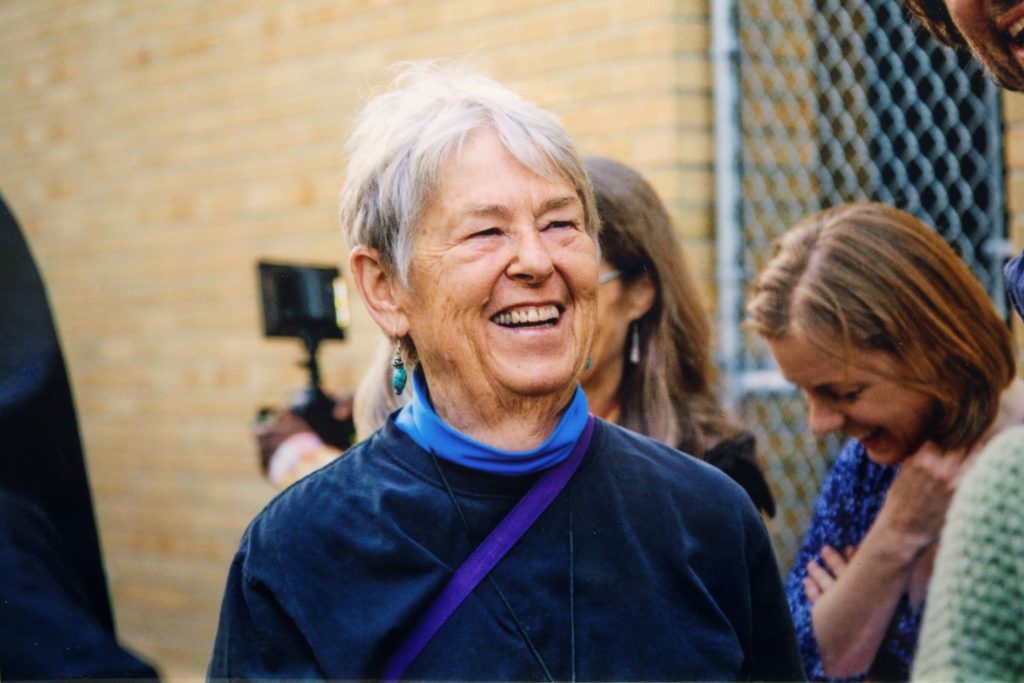
I remember thinking ‘this is extraordinary.’ They’re not only teaching this, they’re living it.
Arline Saturdayborn was 66 and felt self-conscious about her age when she came to SIT’s TESOL program a decade ago. In today’s youth-focused society, she said, “you take in limiting bias about yourself unconsciously. This program does not support that. It helped me enormously because we did a lot of cultural experiences and I was able to apply that to myself: The culture that I grew up is not the culture I wanted to live my life from, a youth-obsessed culture.”
Saturdayborn, who teaches English to immigrants in Portland, Maine, said she was impressed with how SIT faculty lived what they were teaching. She recalled how, when one student got upset about the way things were being done, during the next class he was able to work independently in a way that suited him better. “I remember thinking ‘this is extraordinary,’” said Saturdayborn. “They’re not only teaching this, they’re living it. There was a space for everyone. That was a profound teaching experience.”
Now in her 70s, Saturdayborn added, “If I am lucky enough to teach another 20 years, I will continue to learn from it.”
Still Breaking Ground: Plurilingual Pedagogy
The TESOL program’s unique history is what laid the groundwork for its creative approaches to language education and intercultural communication. According to Fantini. “This innovative program continually explored a variety of new and exciting approaches to teaching language. Nonetheless, the most important lesson was not to subject students to the best methods of the day, but to subject the best methods of the day to the needs of students and the cultural context of the teaching situation wherever it be in the world.”
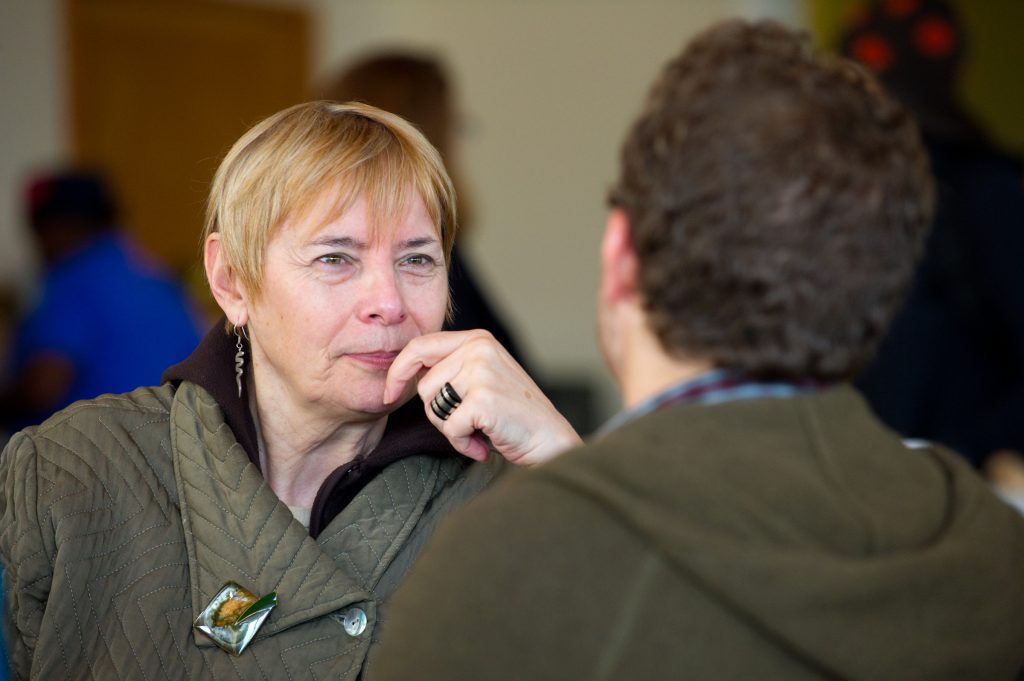
That evolving process is what led Turpin and TESOL Professor Elka Todeva to make some significant changes this year. They added four distinct concentrations: plurilingual pedagogy; teaching refugees and displaced persons; teaching young learners; and teacher training. (“Plurilingual” refers to an individual who speaks and understands multiple languages and cultures, whereas “multilingual” refers to a society characterized by multiple cultures and languages.)
They also added a plurilingual concentration to SIT’s pedagogy, making this the first TESOL program in the country to incorporate egalitarian approaches that celebrate diversity, mutual enrichment, and equity.
Turpin said the changes more fully reflect new sociopolitical realities and invite a deeper exploration of the way linguistic and cultural diversity can enhance learning.
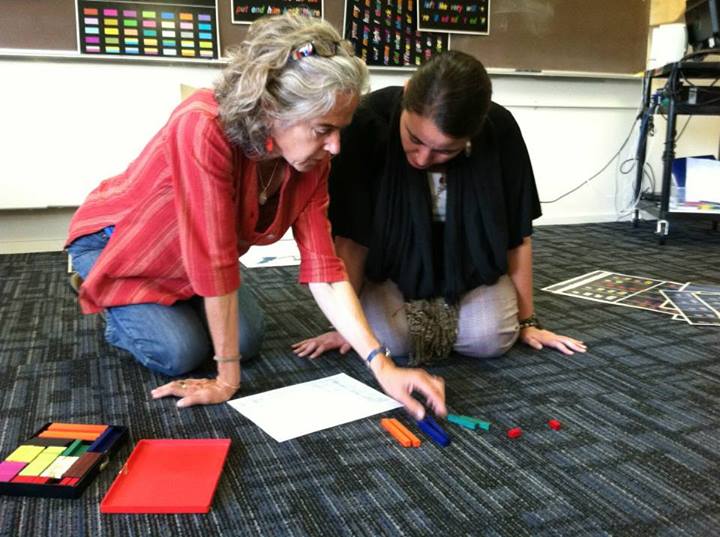
The MA is currently offered in a two-year low-residency format in which students come to the Vermont campus for three formative weeks each summer, forming bonds with their cohort and meeting incoming students. But another unique feature is that SIT professors travel to their students’ classrooms anywhere in the world to observe and assess their interactions in real time.
In a recent SIT podcast, Todeva explained that the guiding light of SIT’s program is that all students who come into the classroom bring a wealth of prior knowledge. “The beauty of plurilingual pedagogy is that it creates the space for us to tap into that knowledge,” she said.
“We live in a multilingual, multimodal world,” she continued. And while SIT’s program has always been about teaching and learning languages, the new focus embeds a broader and more inclusive foundation. “It’s not just a scaffolding device, allowing people to sporadically use their first or other languages in the classroom to facilitate understanding. Plurilingual pedagogy is a much broader concept; it involves tapping with greater intentionality into the rich linguistic and cultural knowledge of the learners. … It is a multidimensional sharing among all participants—teachers and learners—and their real and virtual communities.”
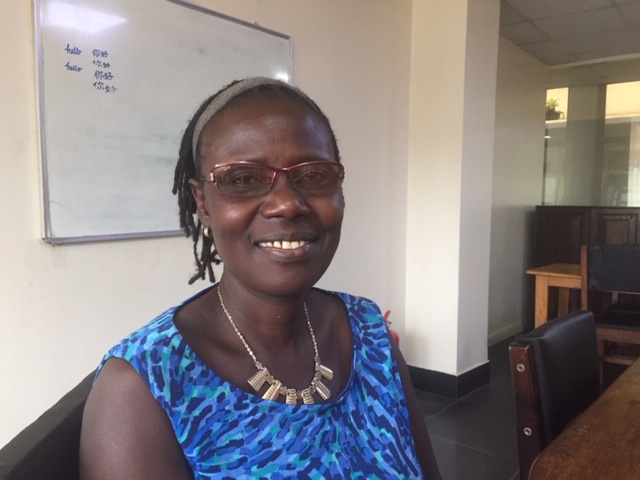
A student comes in with no English and two months later they are speaking. I love it.
That was an important concept for Uganda teacher and SIT alumna Margaret Akena, who teaches English at an international primary school in Kampala. “When you have different cultures in the same classroom, learners learn from each other; we are different but in a way that the difference is the strength,” Akena said. With few ESL resources at her disposal, she developed her own curriculum, which he now shares with other teachers.
Akena found that by accepting and highlighting their diversity, students settle into a safe space that allows them to learn more quickly. The result, she said, is often that “a student comes in with no English and two months later they are speaking. I love it – you might have 11 or 12 students on the first day of term from different countries. Sometimes they are crying; sometimes aggressive. But within a few days we are like a family.”
The plurilingual philosophy dovetails neatly with SIT’s larger, fundamental mission to prepare students to become leaders, professionals, citizens, and agents of change. While the new TESOL approach validates and celebrates plurilingualism as an asset for professional growth in a multicultural world, according to Todeva, it also recognizes the importance of linguistic diversity on a societal level, creating opportunities for honest conversations about people who speak multiple languages.
“We seem to follow two different Biblical concepts. One is Babel, where knowing multiple languages is a curse, and the other is the Pentecostal stance where knowing multiple languages is a gift,” said Todeva. “Our attitudes seem to change depending on who the plurilingual speaker is. Elite multilingualism is valorized and considered highly desirable and a source of pride. Grassroots multilingualism, on the other hand, is often portrayed as a liability, or looked upon with suspicion, seen as a refusal on the part of multilinguals to fully integrate into their new culture.
“It is critically important for us to problematize that double standard to multilingualism,” Todeva continued, “particularly in the current climate of growing nationalism, populism, and xenophobia, which are becoming more and more part of the mainstream political discourse. With the new MA TESOL program, students will be working on counter narratives that promote justice, empathy, inclusivity and a more tolerant world.”
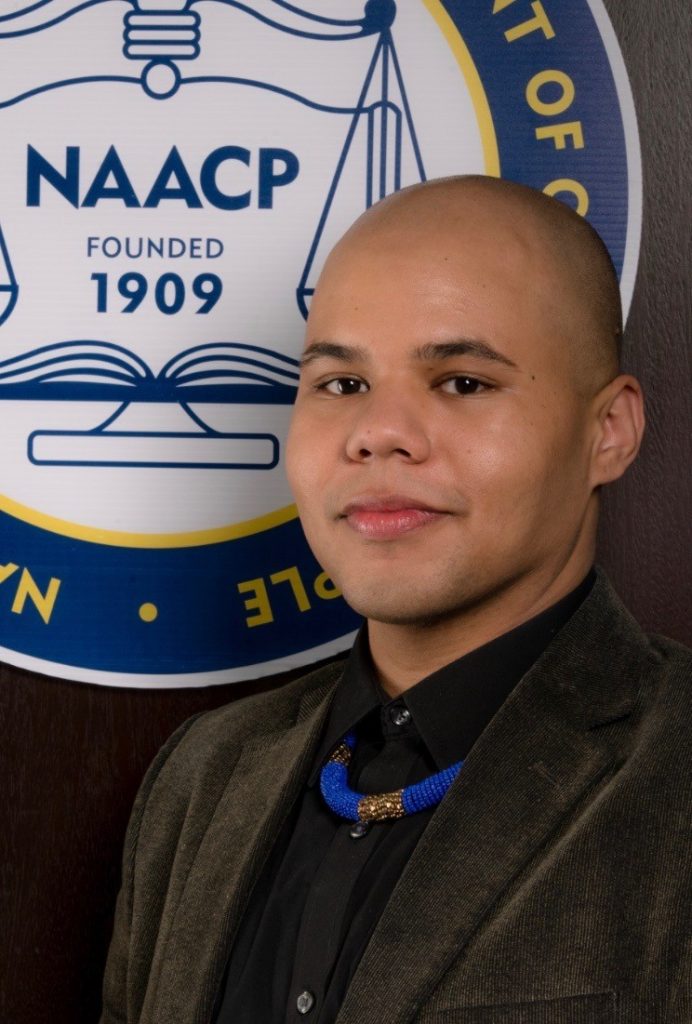
… Awards like this one help show how important it is to build more equitable and sustainable communities for everyone.
SIT alumnus and former staff member Steffen Gillom is among 40 young Vermonters named by Vermont Business Magazine as the state’s most accomplished young leaders of 2019. VBM’s 40 “Rising Stars” under age 40 received awards this week for their “commitment to business growth, professional excellence and involvement in their communities.”
They were honored Thursday night, Nov. 7, at a dinner and awards ceremony in Burlington, and are featured in the November issue of the magazine.
Gillom graduated from SIT Graduate Institute in May 2019 with an MA in Peace and Conflict Transformation. He also worked as diversity coordinator with SIT Student Services.
In 2016, while a student at SIT, Gillom founded Vermont’s first NAACP chapter, in Windham County, and currently serves as its president. At the time, he told the Brattleboro Reformer, “I think as a young professional of color living in Vermont, one of the things that would make me stay here would be structures like the NAACP being in place.”
He said his vision for the chapter was to “integrate and collaborate with all the other social justice movements happening here and work with them on issues that I think the NAACP could help support with its historic name and backing.”
Responding to news of the VBM award, Gillom said, “I am very happy to receive this award. I feel that awards like this one help show how important it is to build more equitable and sustainable communities for everyone.”
VBM Publisher John Boutin said the magazine received 240 outstanding nominations for the 2019 Rising Star awards. “For these young professionals it’s not just about business. It’s about them making a difference in their communities,” Boutin said.
Gillom is among eight Rising Star award recipients from Windham County.
